In Review: Summer ‘Festival’ Session 2024
Mahler & LeWitt Studios, Spoleto


The 2024 Summer ‘Festival’ Session saw a number of projects come to fruition developed by returning residents. In partnership with Yale School of Art and Yale University Art Gallery we also hosted Christopher Paul Jordan on a studio residency:

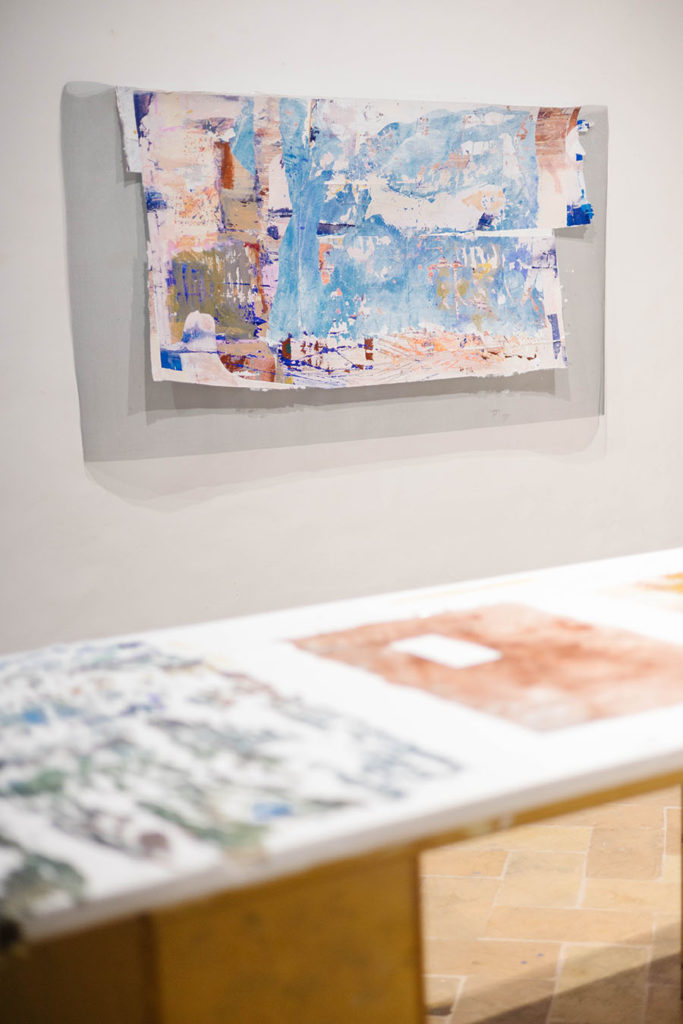
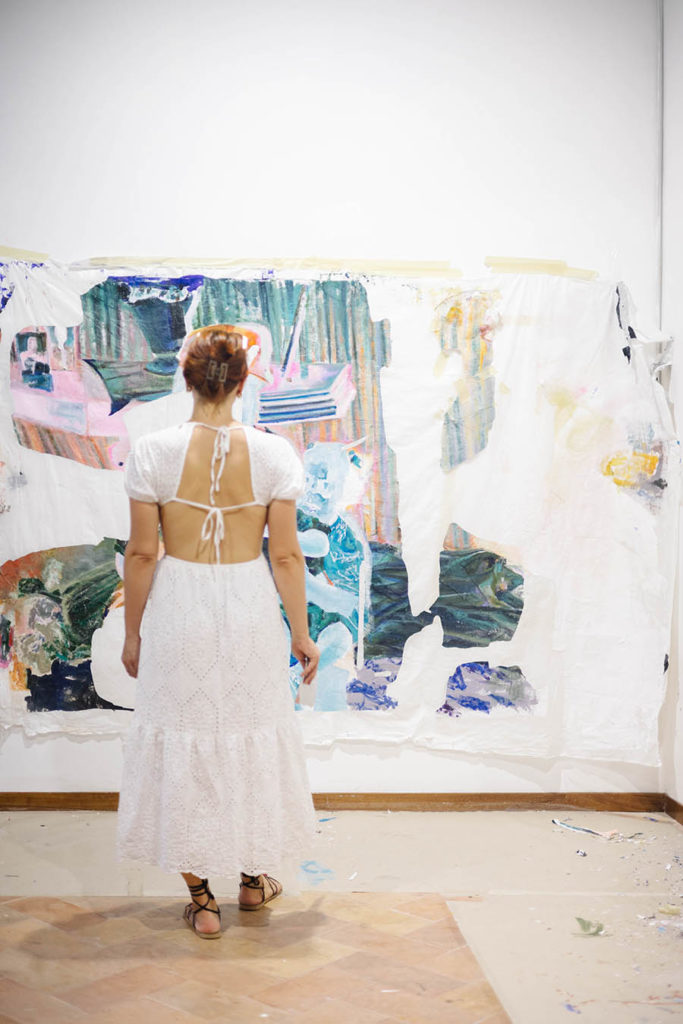
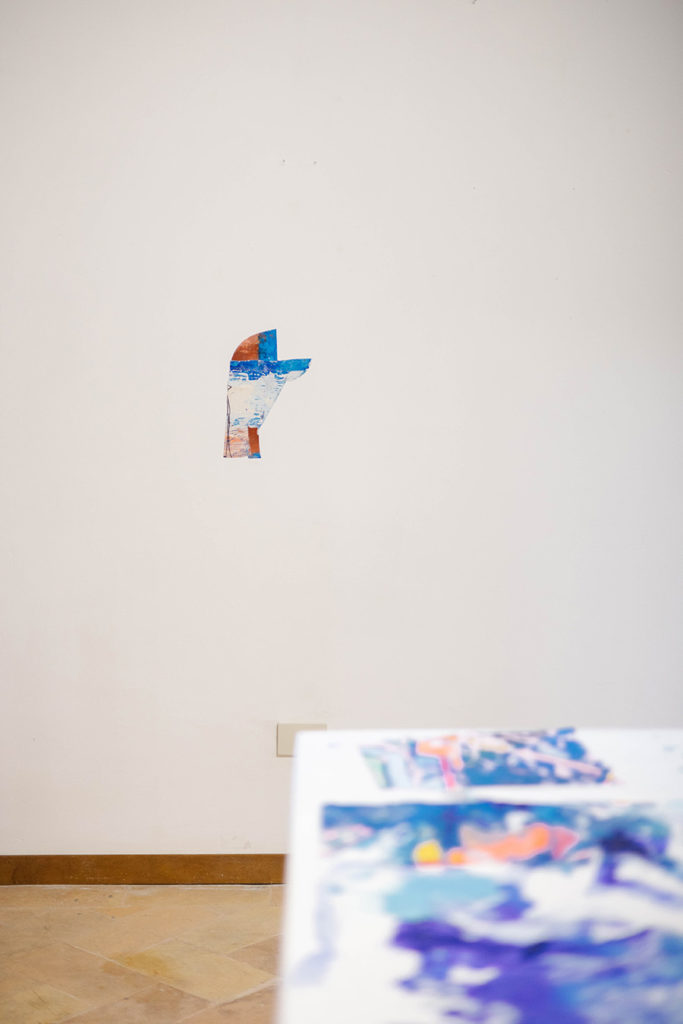
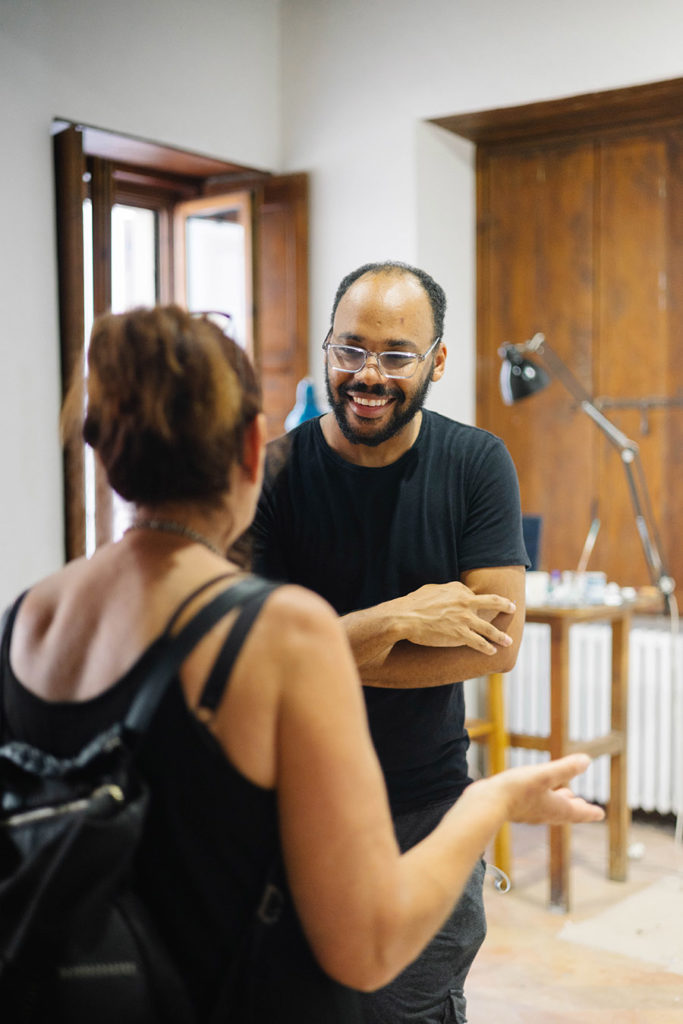
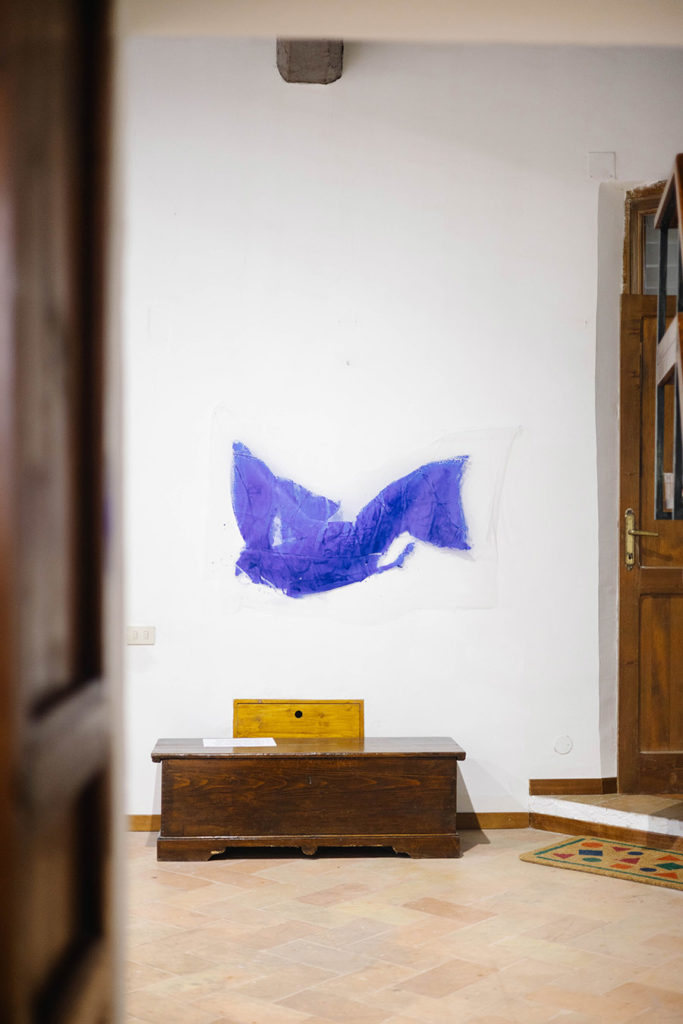
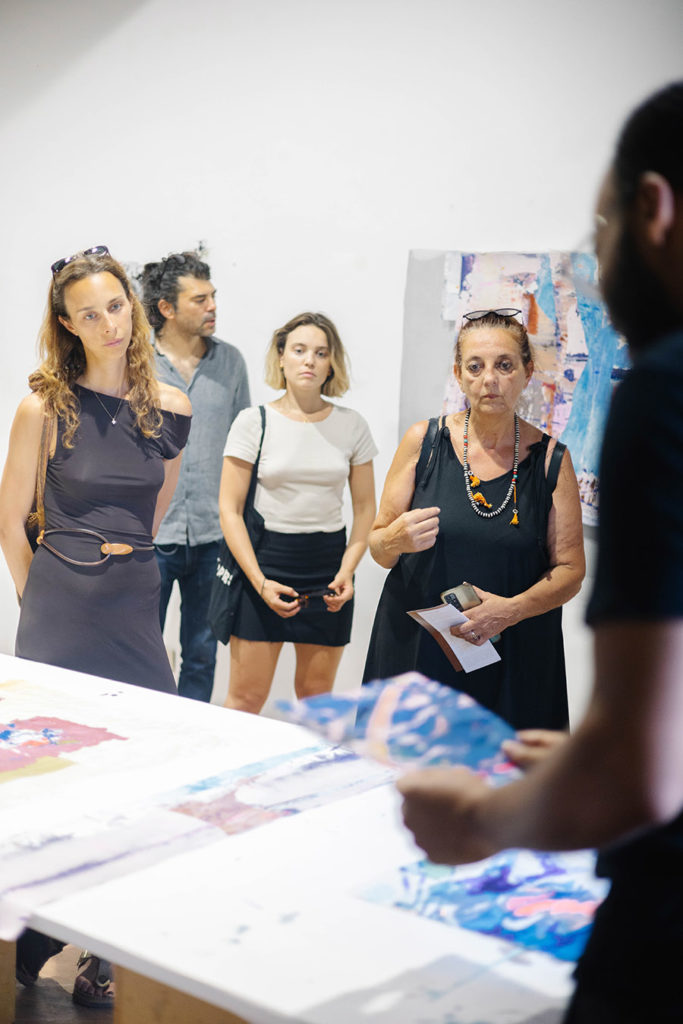
Christopher Paul Jordan (b. 1990, Tacoma, US) is a painter and public artist. Adapting techniques traditionally used in art conservation and theft – simulating conditions of removal, replacement and repair – his work investigates the mutability of memory and the ways we change because of our losses. Jordan, who has a background in muralism, uses techniques in his painting which are close to ‘strappo’, a method for detaching frescoes from their original walls using textile, often to exploit their commercial value. He says: “The fabric mesh behaves like a recording device, retrieving stories, textures, and images from the world. I often soak and graft discrete screens together with colour. As their melded surfaces are pulled apart, the paintings mark each other. They live on as cognates, retelling sequences of union and departure.” In Spoleto, Jordan had the opportunity to work and study with art historians and conservators who share his research interests. Margaret Ewing, Horace W. Goldsmith Assistant Curator of Modern and Contemporary Art at Yale University Art Gallery, also joined the session to work with Jordan as part of the Open Call award mentorship program.
Luis Alberto Rodriguez with Afra Zamara
Legàmi: Studies in the costume archive of the Spoleto Festival dei Due Mondi
Ex Battistero della Manna d’Oro, Piazza Duomo, Spoleto
29 June – 15 September, 2024

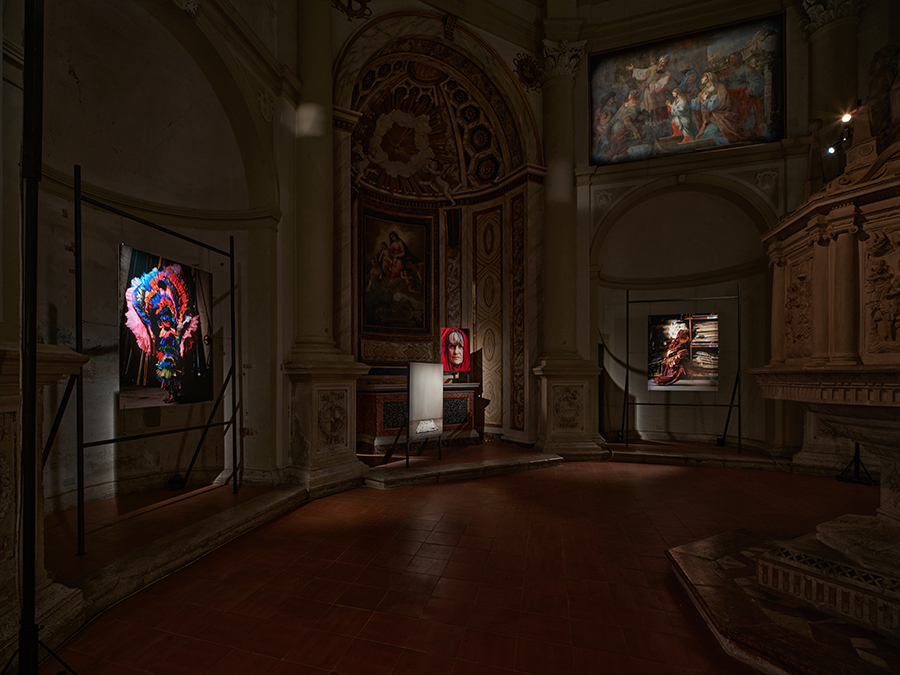
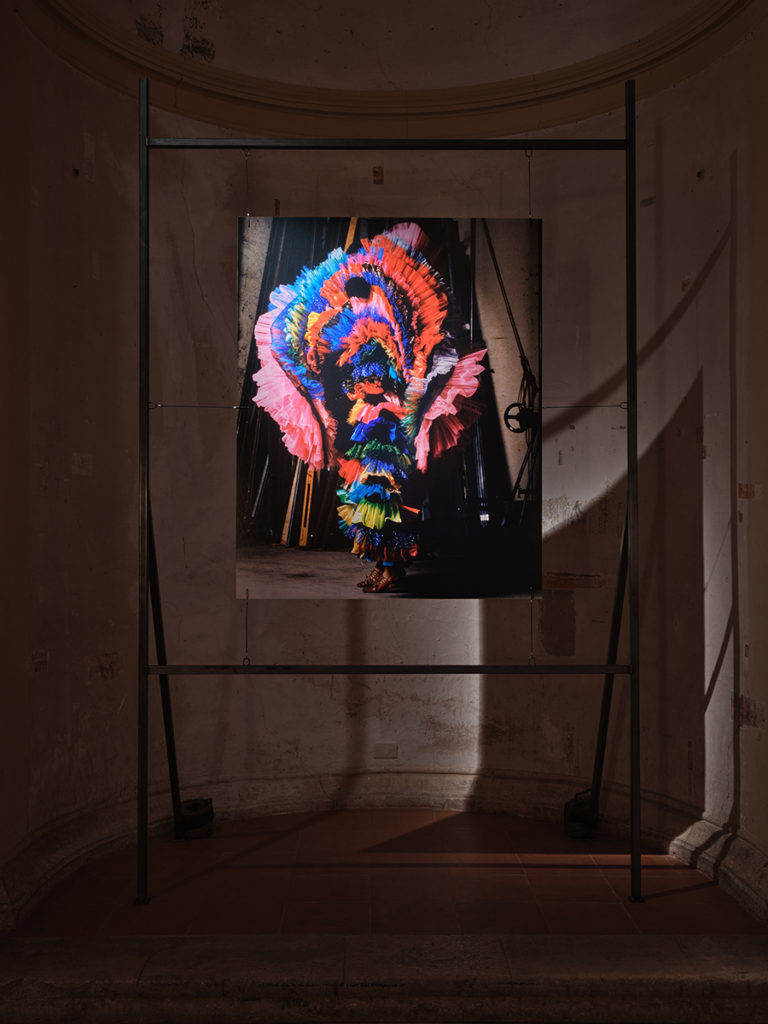
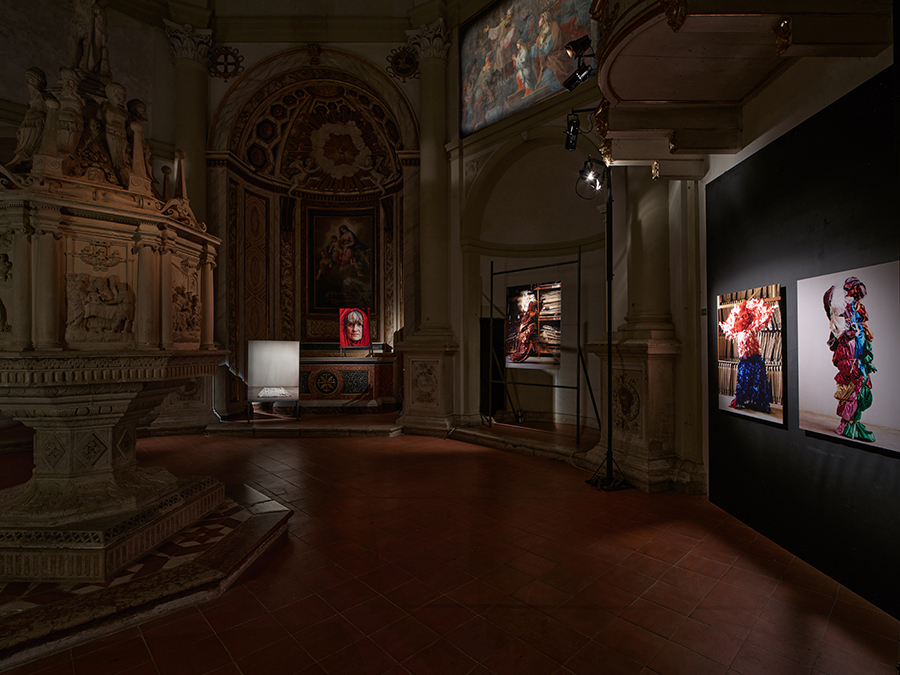
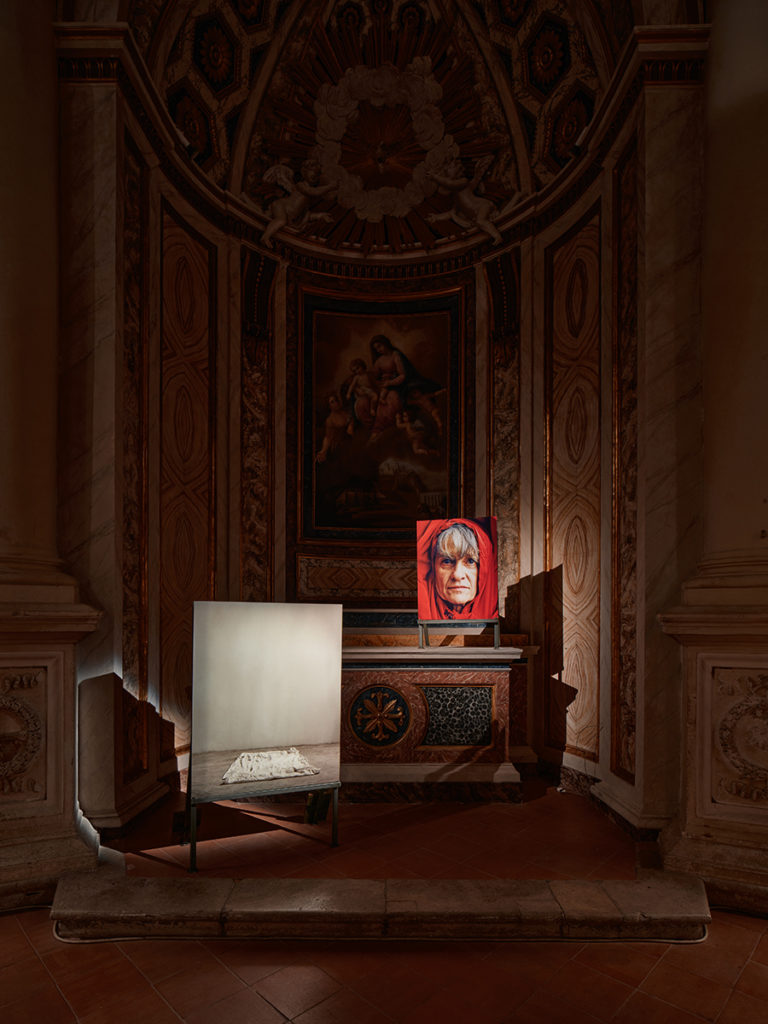
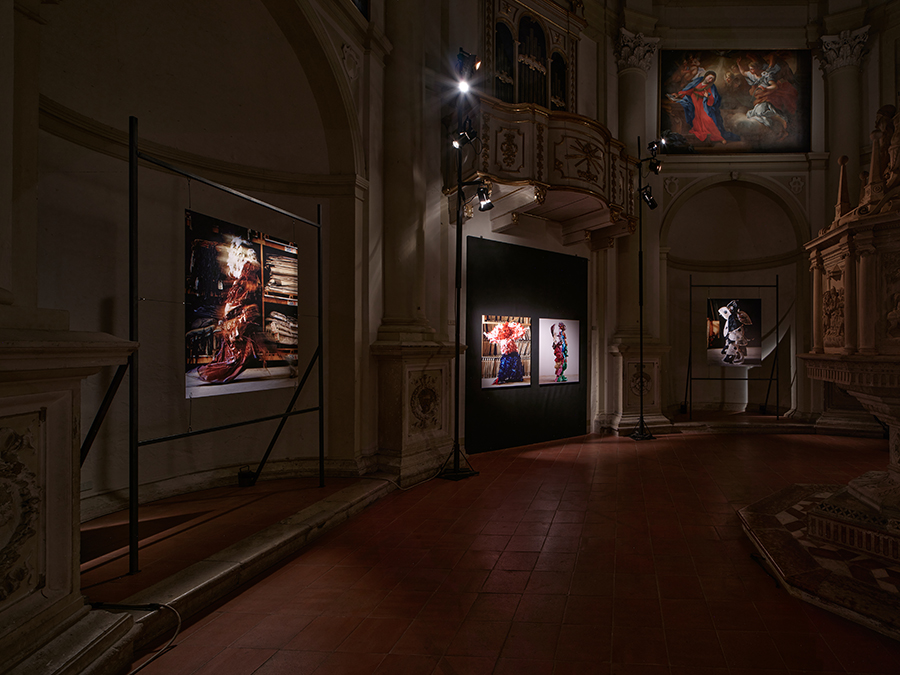
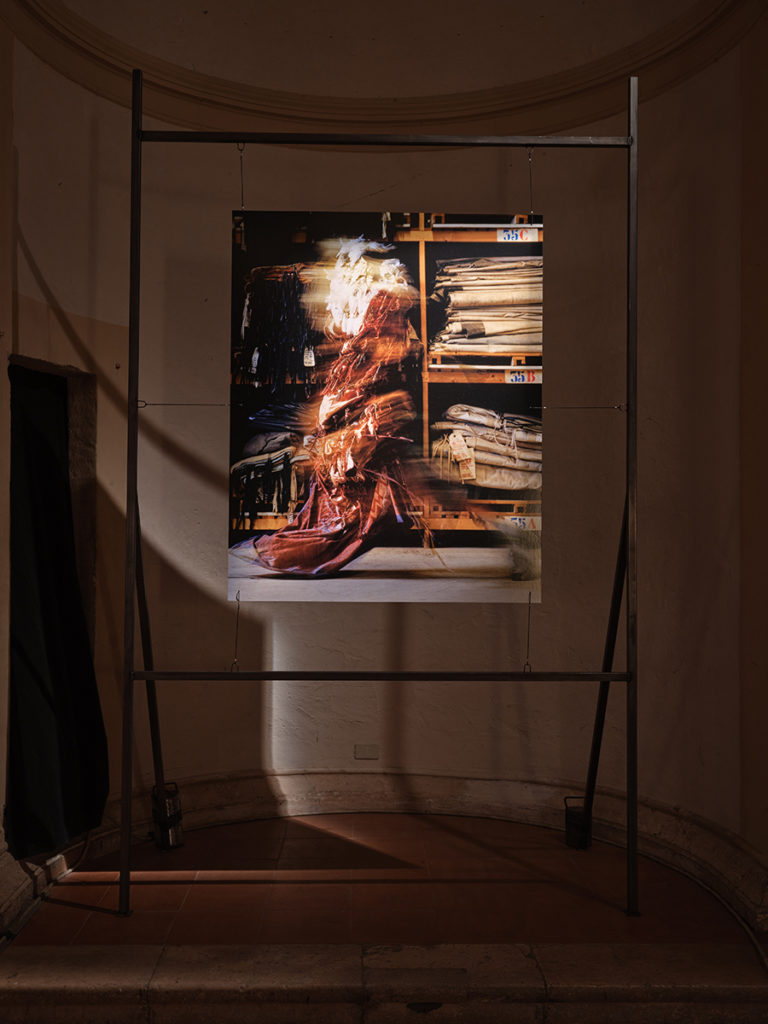
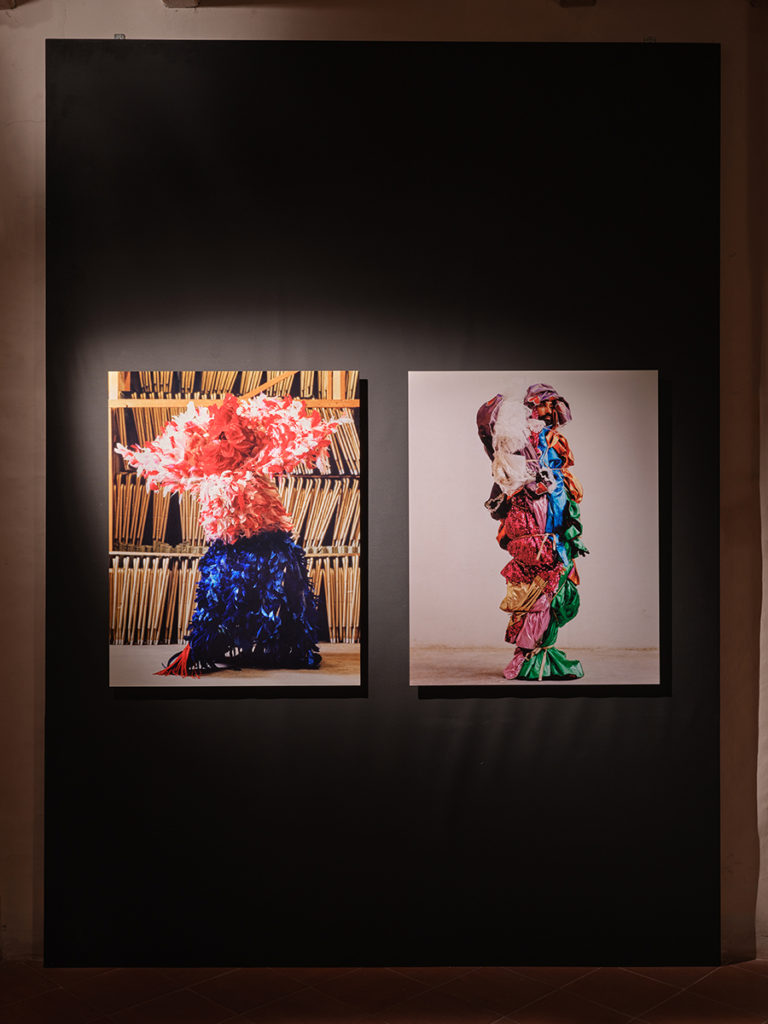
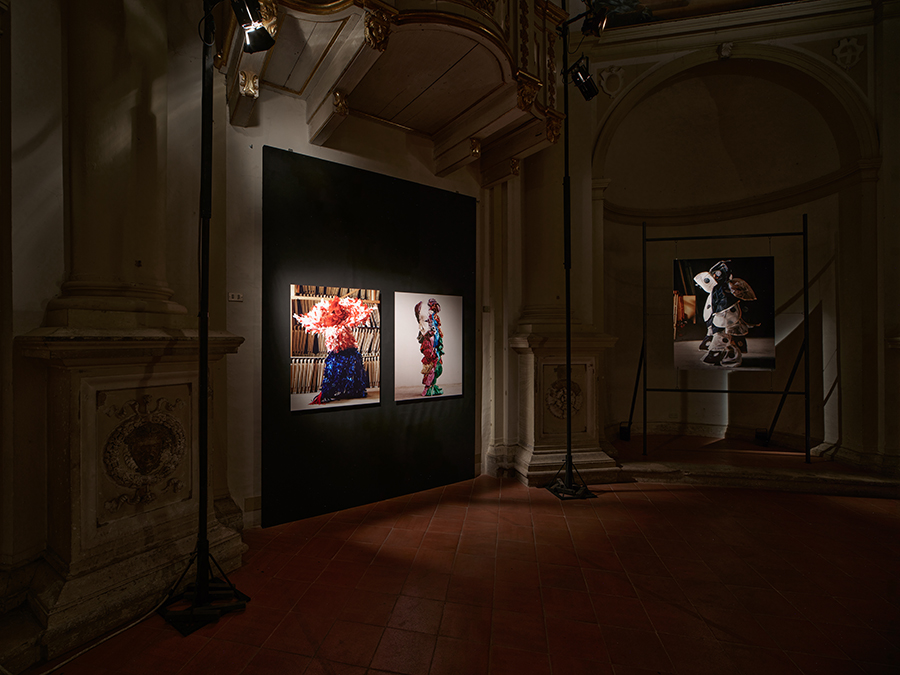
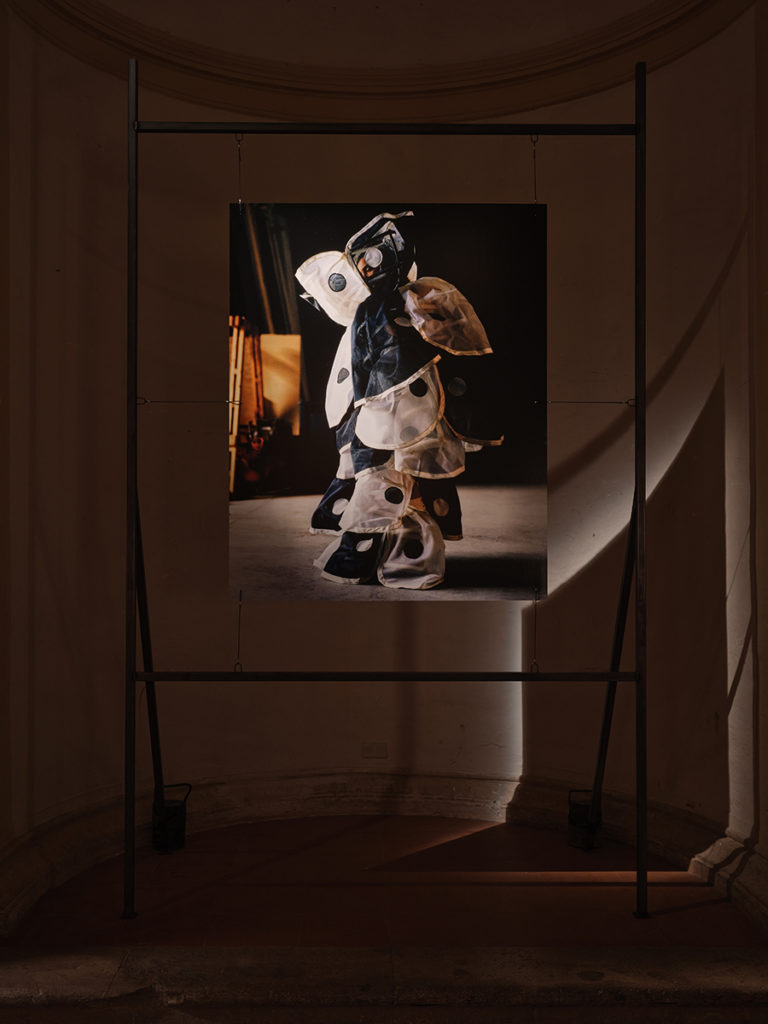
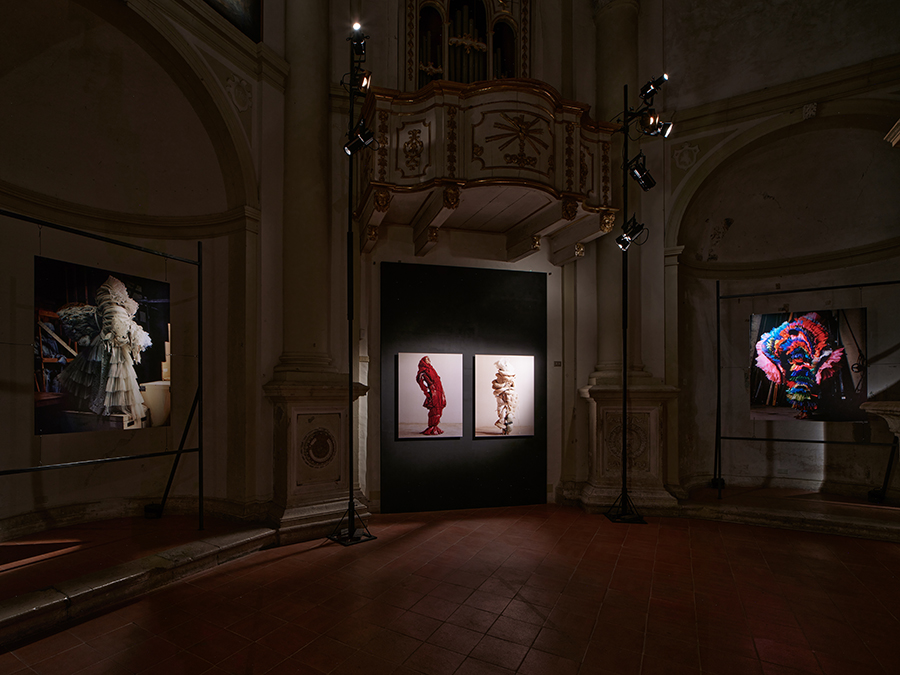
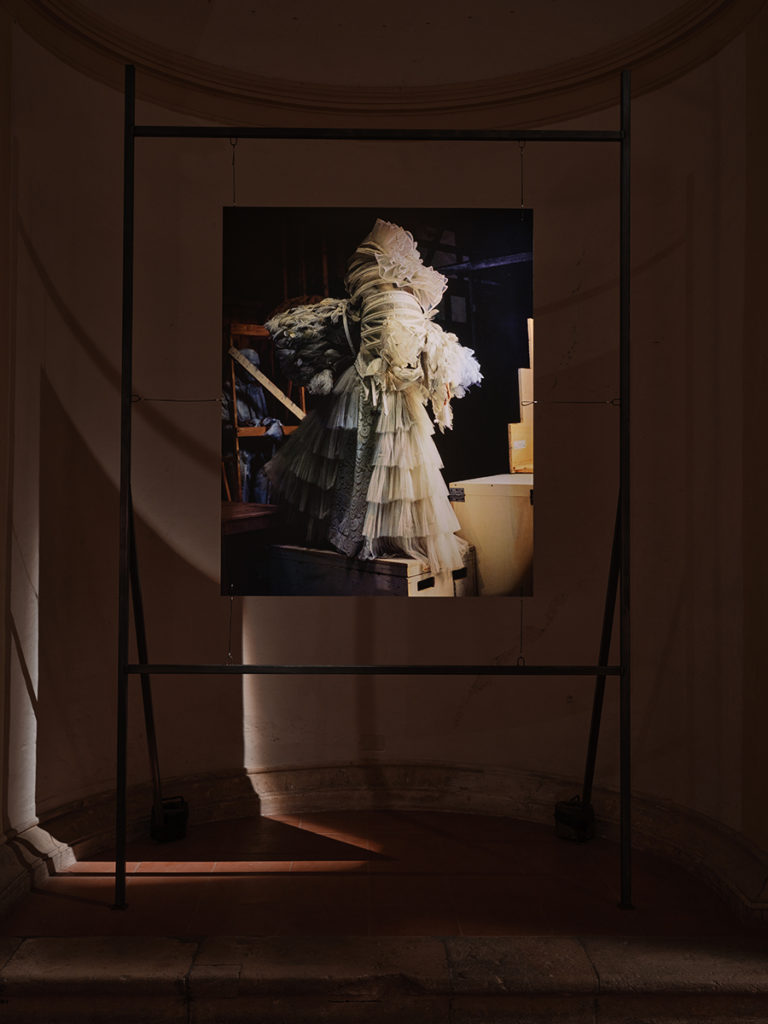
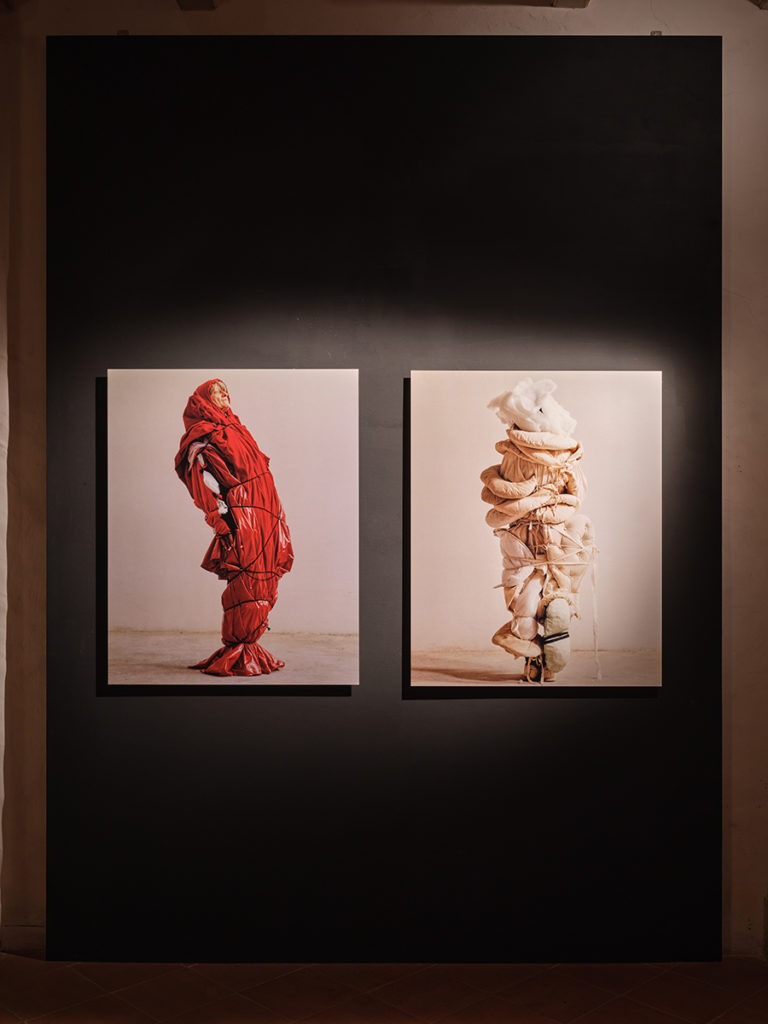
The costume archive of the Spoleto Festival dei Due Mondi documents the costume design for ballet and opera at Italy’s most historic performing arts festival between the 1960s and the 2000s. Recently the Festival has laboriously and methodically established the archive to ensure this cultural history is preserved. The Mahler & LeWitt Studios proposed inviting an artist to respond to the archive. The resulting project, ‘Luis Alberto Rodriguez and Afra Zamara: Legàmi – Studies in the costume archive of the Spoleto Festival dei Due Monidi’, is part of a three-year residency program at the Mahler & LeWitt Studios supported by Carla Fendi Foundation and the Carla Fendi Award 2021.
Prior to beginning his award-winning career in photography in the mid 2010s, Luis Alberto Rodriguez toured worldwide as a Juilliard-trained contemporary dancer. We see this influence in his instinctive capacity to depict the body in movement. He often works with dancers and also uses his own body alongside those he directs. Today, Rodriguez works across fine art, documentary and fashion photography, blending these genres to create enigmatic and provocative images which explore relationships between performance, dress and expressions of identity. He invited Italian set designer Afra Zamara to collaborate with him in Spoleto. Zamara is known for re-purposing used or archival materials in her scenography and has regularly collaborated with Rodriguez. Together they selected costumes from the Spoleto Festival dei Due Mondi archive, combining them in unexpected and elaborate ways. The resulting images capture the flair and detail of the original costumes whilst transforming the subjects they adorn into otherworldly entities. Clothing does much more than keep us warm: it changes the way we look at the world, and the way the world looks at us. Clothes are a kind of armour. But the endless performance of fashion, like any performance, is exhausting. The word ‘legàmi’ describes a state of constriction. In Legàmi the ballet and opera costumes become surrogates for the body: tied and trussed, each subject is at once burdened and empowered by the exquisite costuming, their capacity for expression aligned with the manner of their dress.
Read an extract from the catalogue essay
Pipa Boy – Scenes from the Post-Diaspora
Spoleto Festival dei Due Mondi 67
29 June, 2024
Sala Pegasus, Piazza Bovio
Presented by the Mahler & LeWitt Studios and the American Academy in Rome,
in partnership with Carla Fendi Foundation

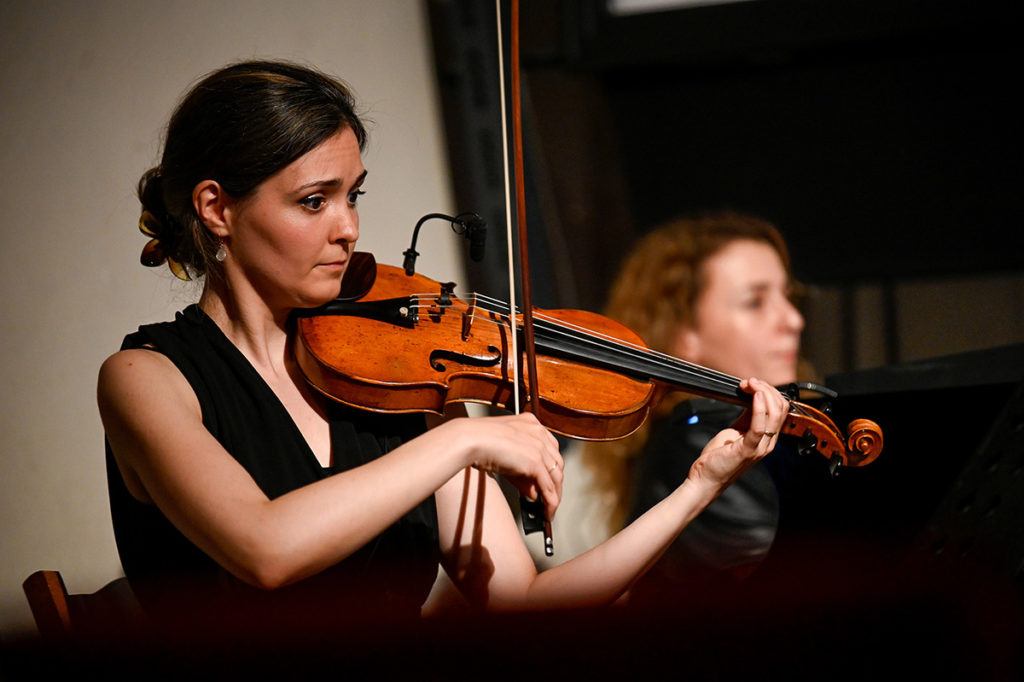
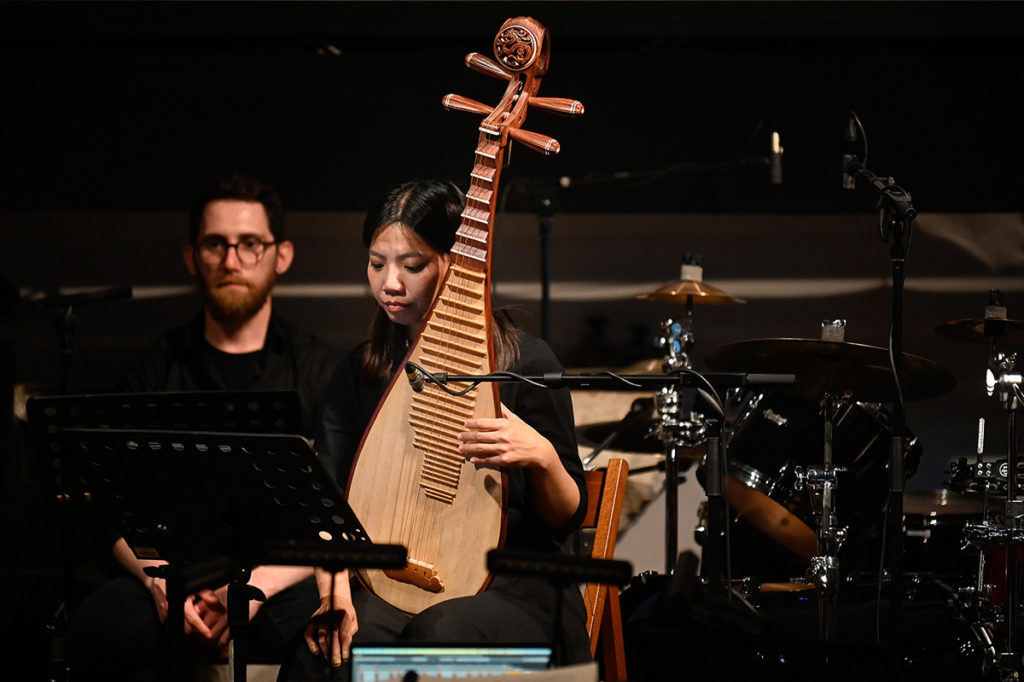
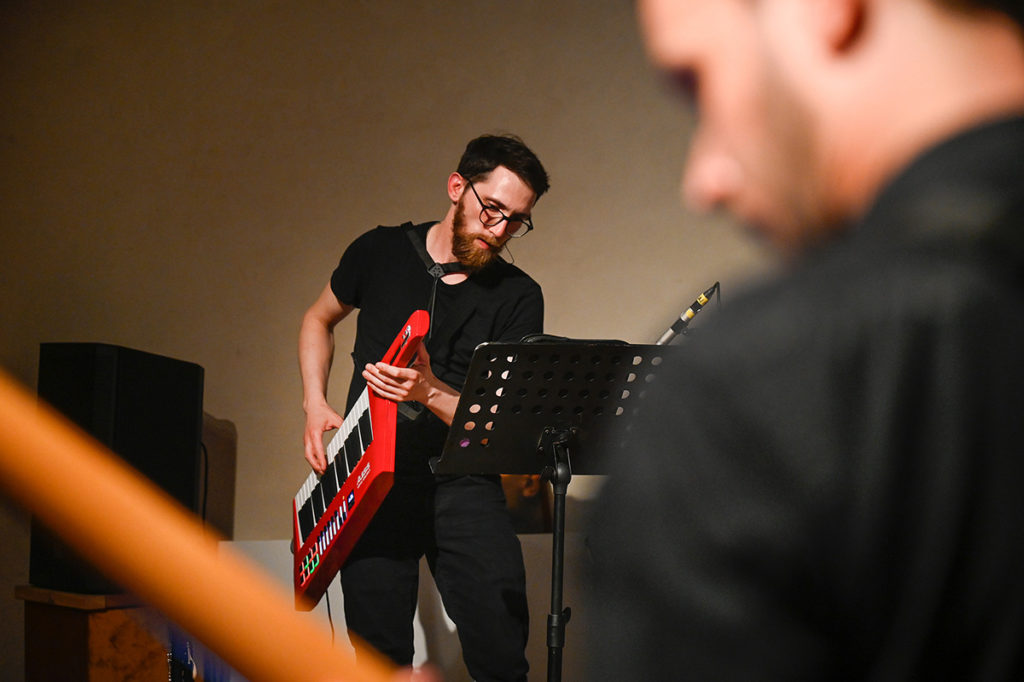
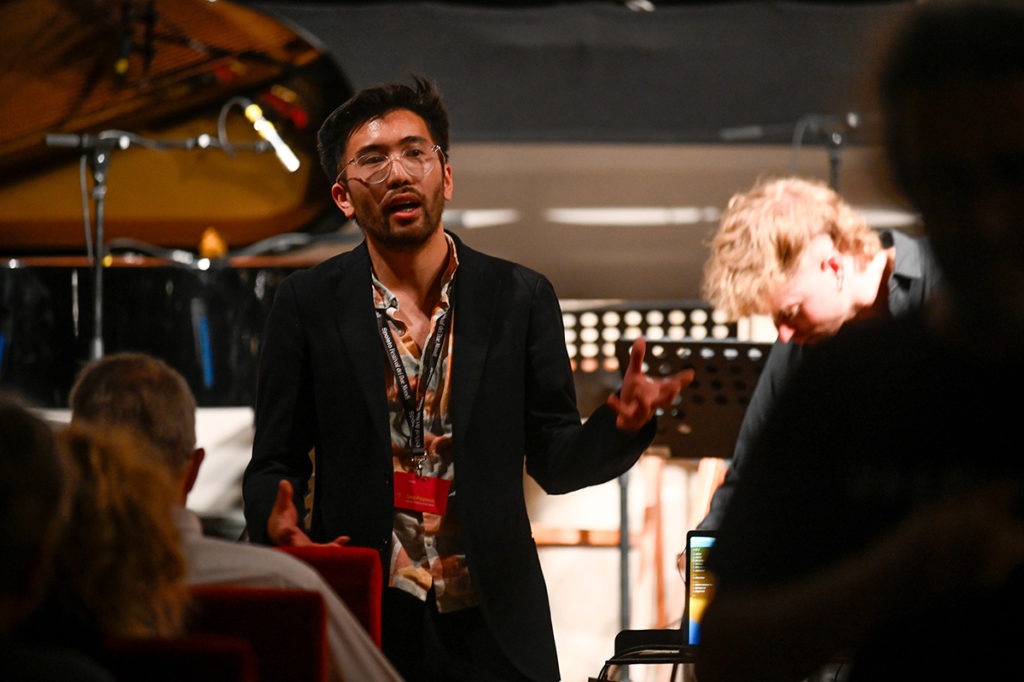
Baldwin Giang (b. Philadelphia,1992) is an internationally-performed composer, pianist, interdisciplinary creator and educator. He joined us as composer in residence on our Winter Session to develop his new work Pipa Boy – Scenes from the Post-Diaspora. Cast in multiple movements, each accompanied by a film, the work explores ideas around post-globalisation identity, hybridity and belonging in urban environments that have shaped the composer’s personal background. Supported by Carla Fendi Foundation and in partnership with the American Academy Rome, where Giang was the Samuel Barber Rome Prize winner, we presented the premiere of Giang’s new work, performed by Ensemble Garage and friends, at the Spoleto Festival dei Due Mondi.
We are pleased to share extracts from the performance in the video linked below.
Jonathan Monk: SL
Spoleto Festival dei Due Mondi 67
29 June – 14 July, 2024
Torre Bonomo, Via della Basilica 8, Spoleto
Mahler & LeWitt Studios with Valentina Bonomo and the Torre Bonomo,
curated by Vittoria Bonifati
In the Torre Bonomo with Valentina Bonomo, former resident Jonathan Monk staged an exhibition titled ‘SL’, curated by Vittoria Bonifati. The exhibition sought to unveil the direct and indirect connections between Monk’s work and Sol LeWitt. Monk’s practice recalls the procedural strategies typical of conceptual and minimalist art of the 1960s and 1970s, with a humorous approach often linked to his personal history. ‘SL’ was accompanied by a new artists book by Monk, a poster and an artist’s edition titled Sol LeWitt Rules – a ceramic ruler, with no measurement markings, modelled on a ruler of LeWitt’s given to the artist.
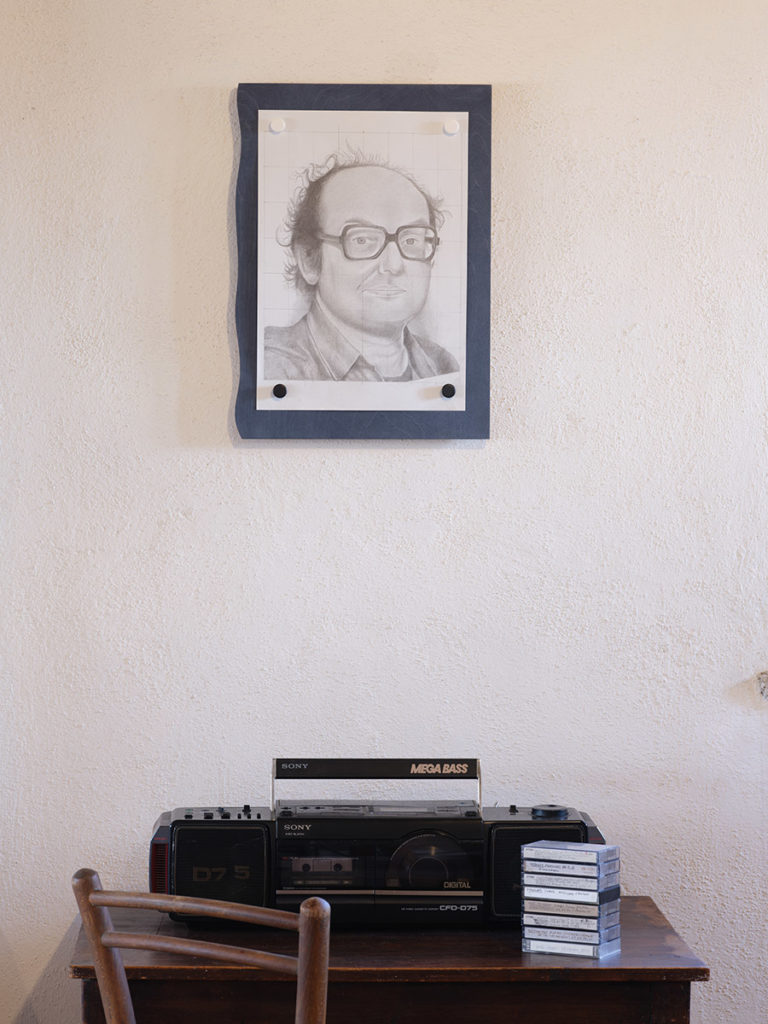
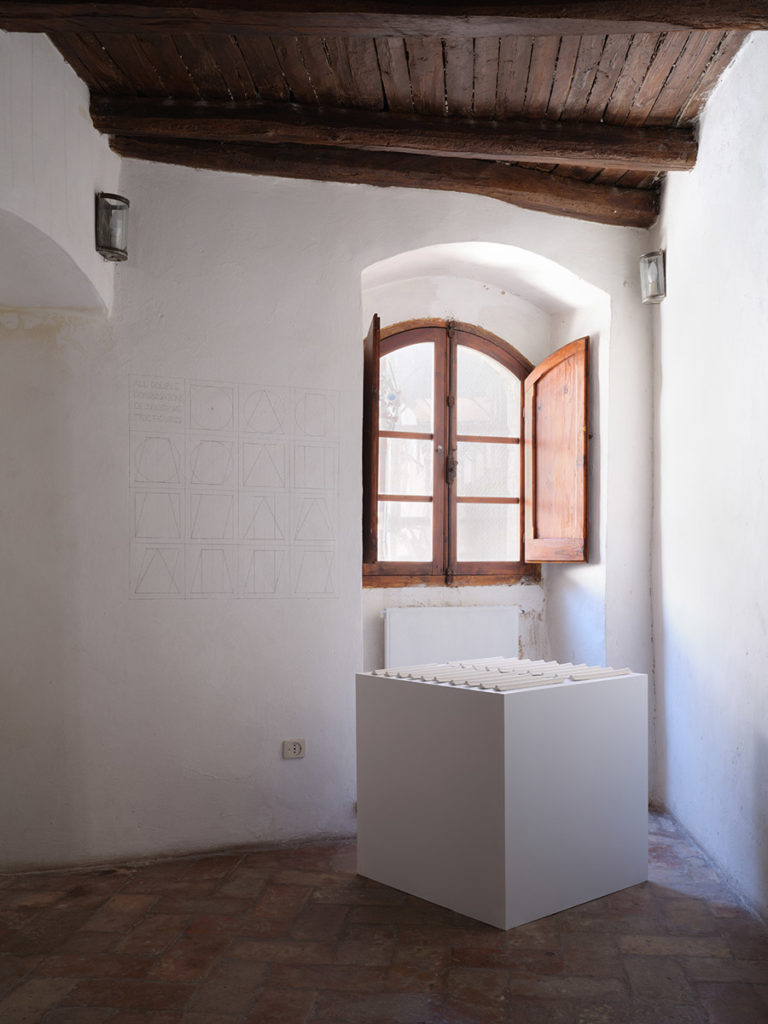
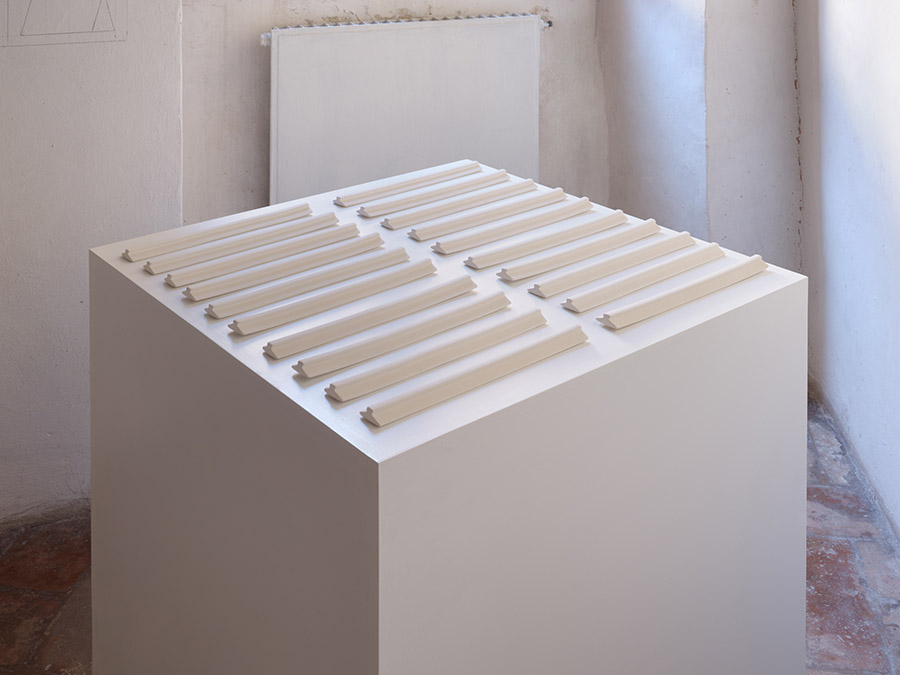
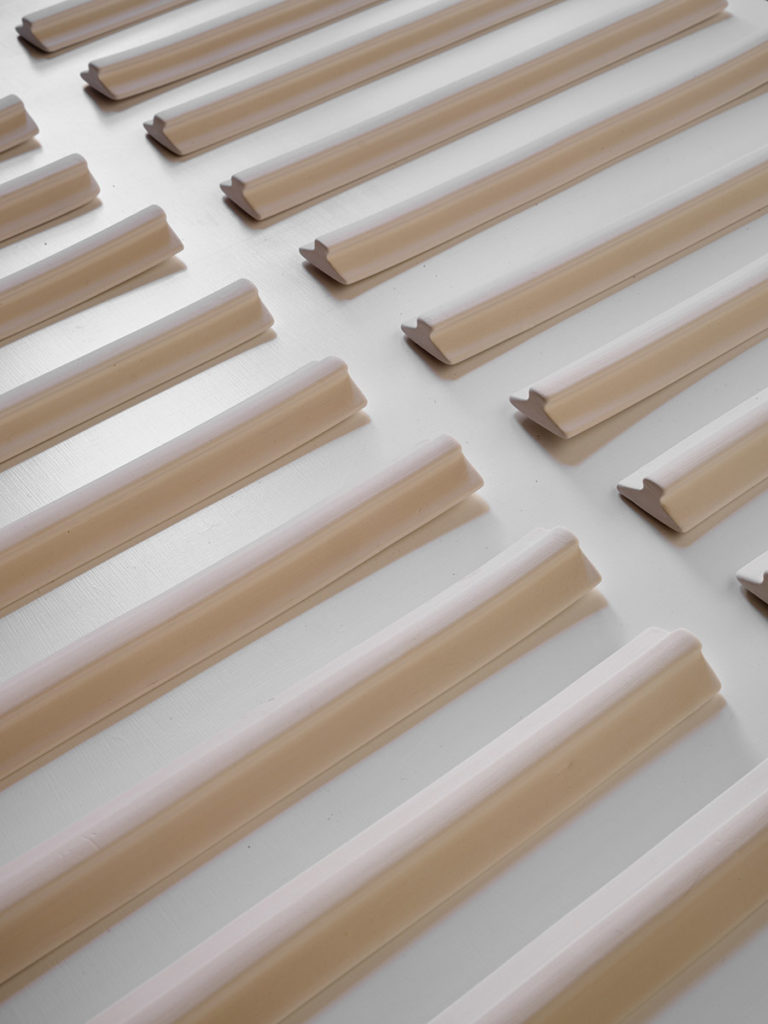
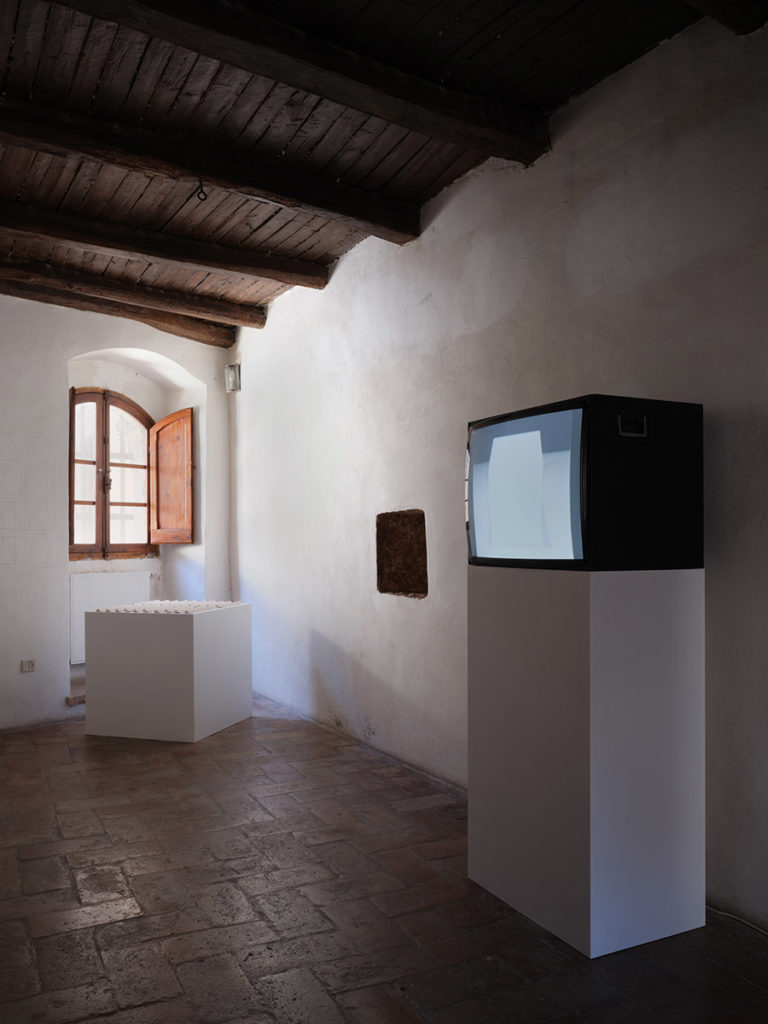
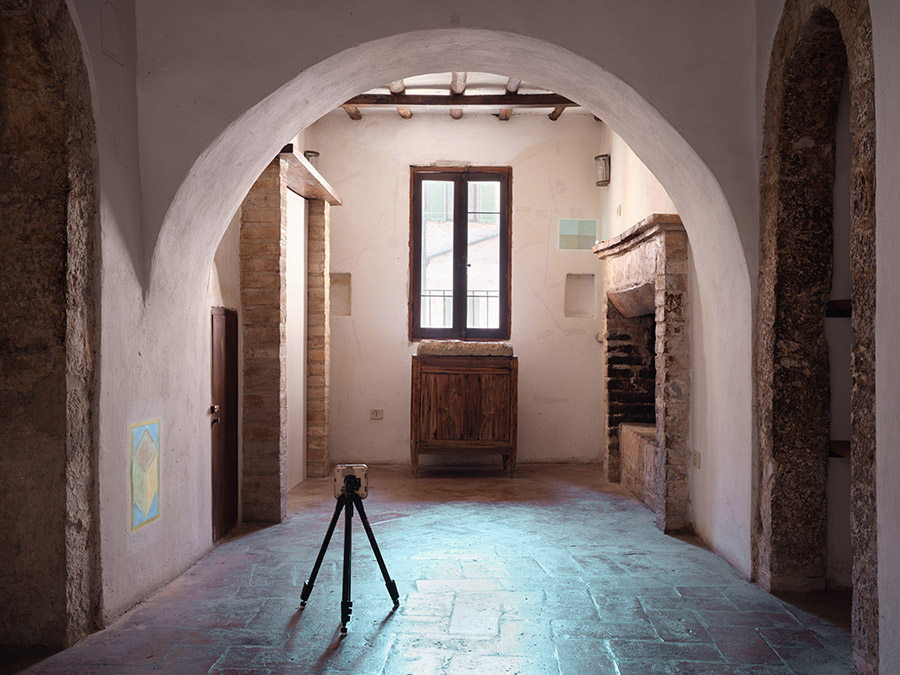
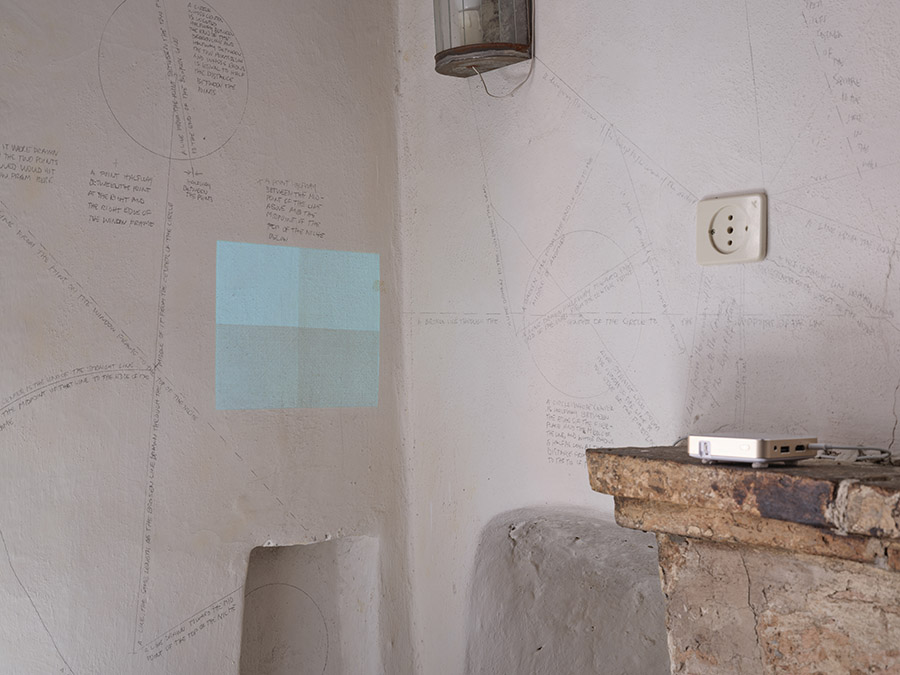
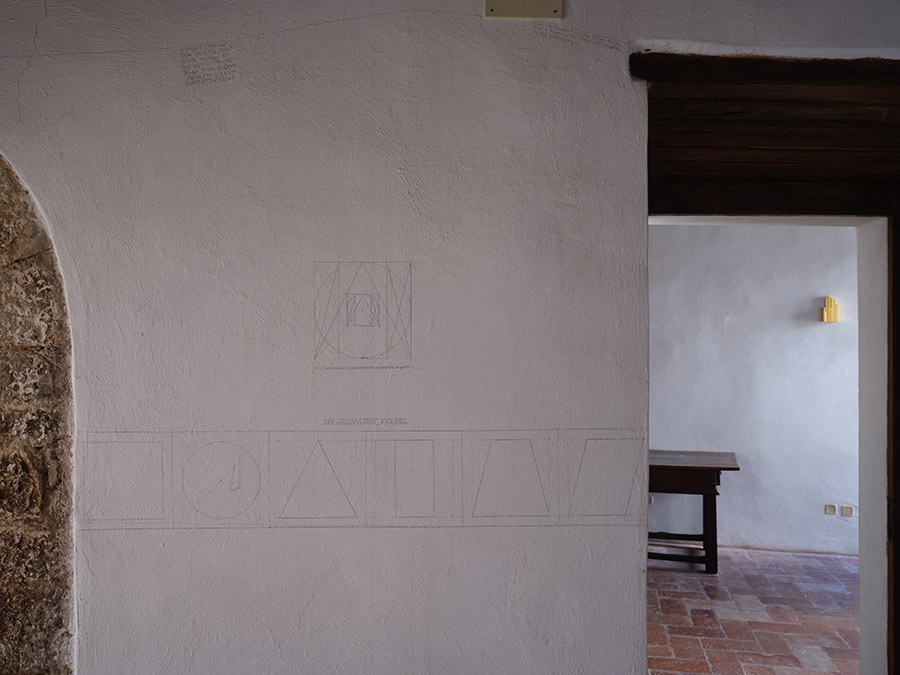
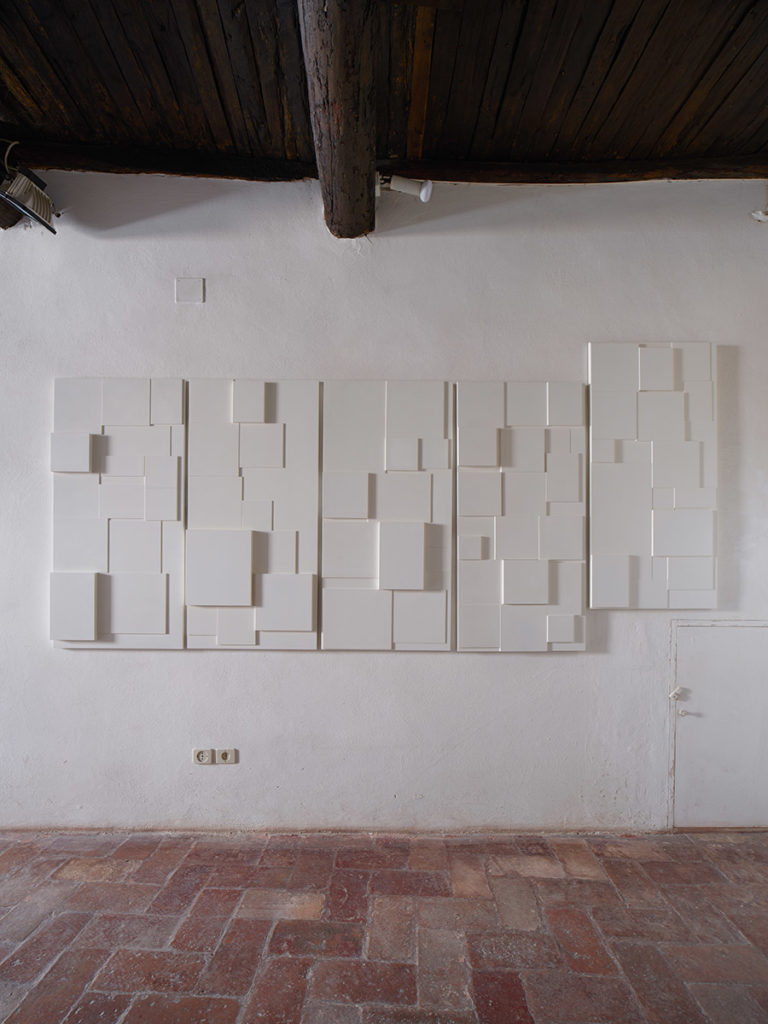
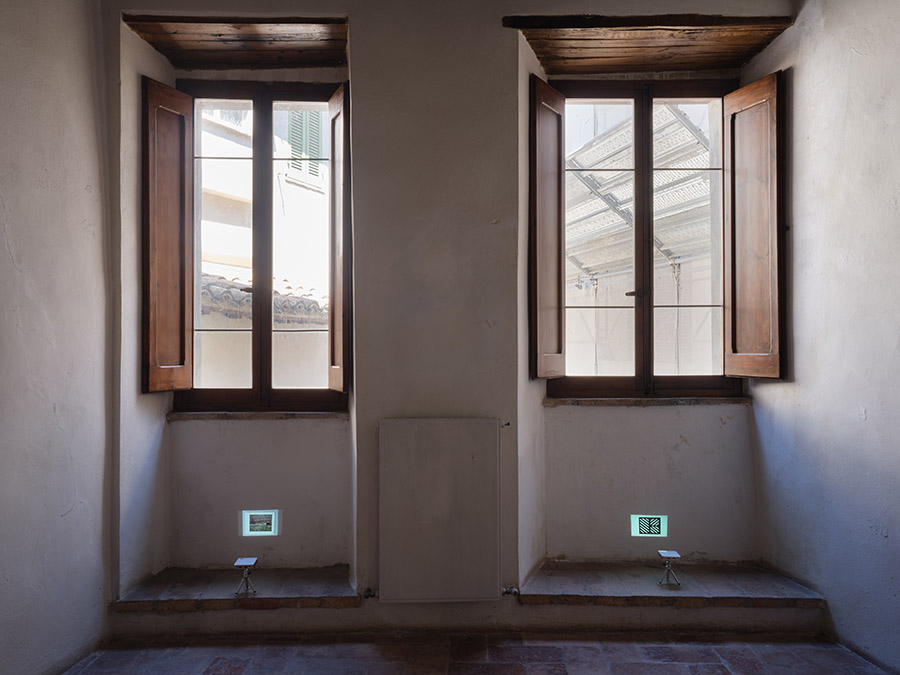
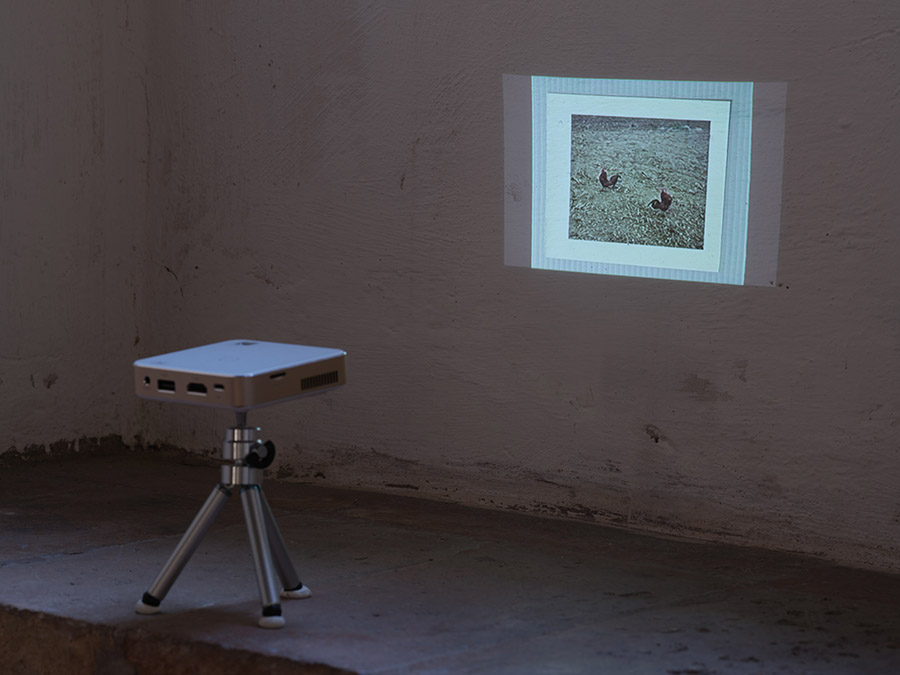
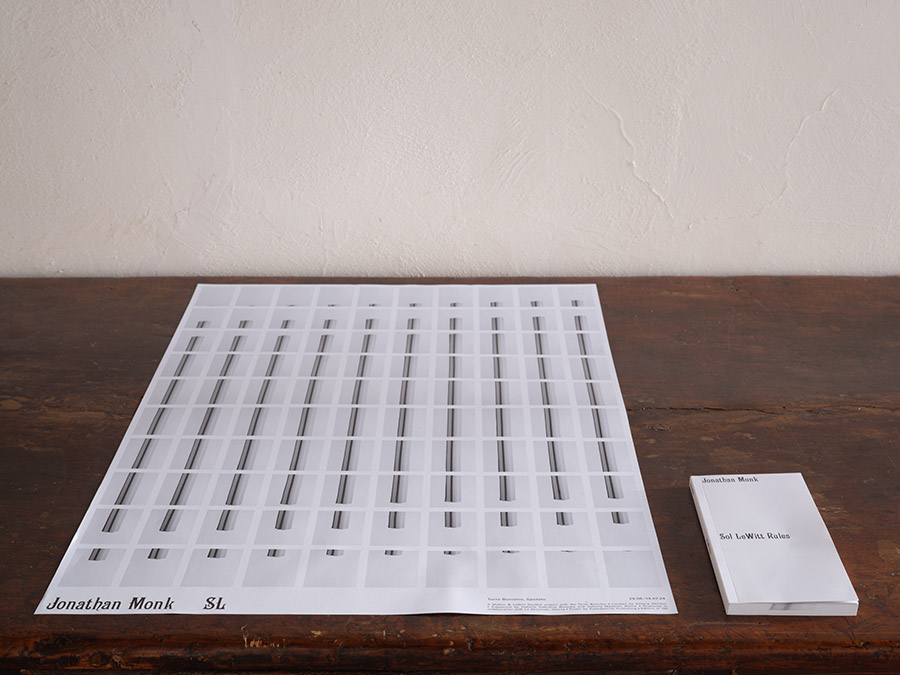
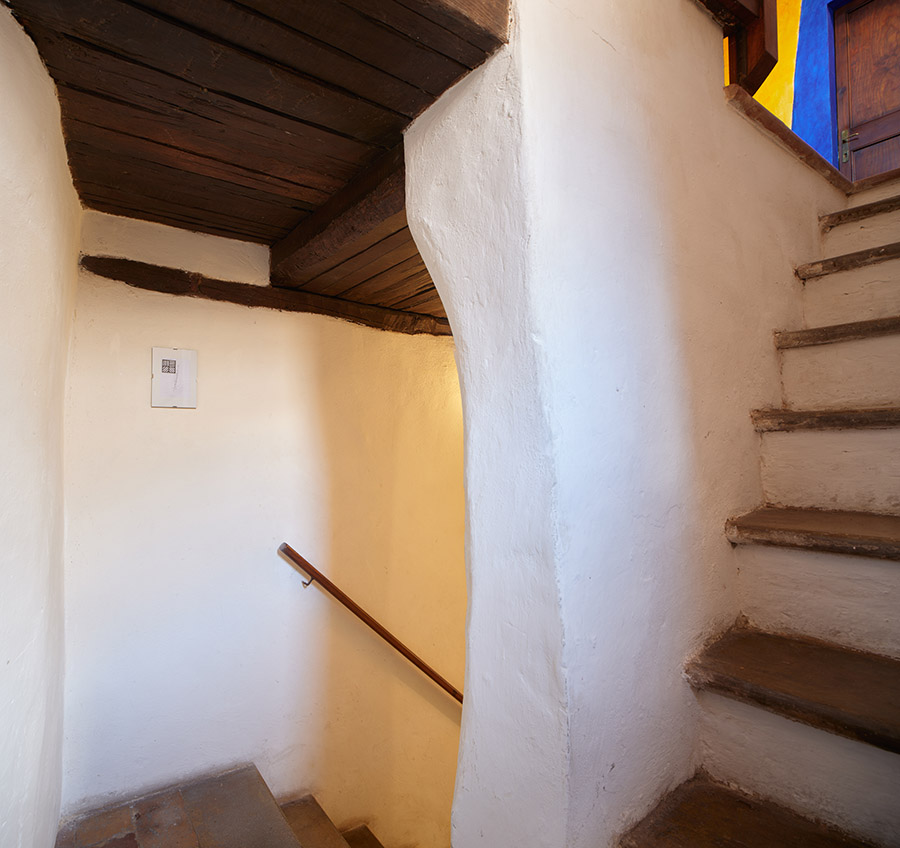
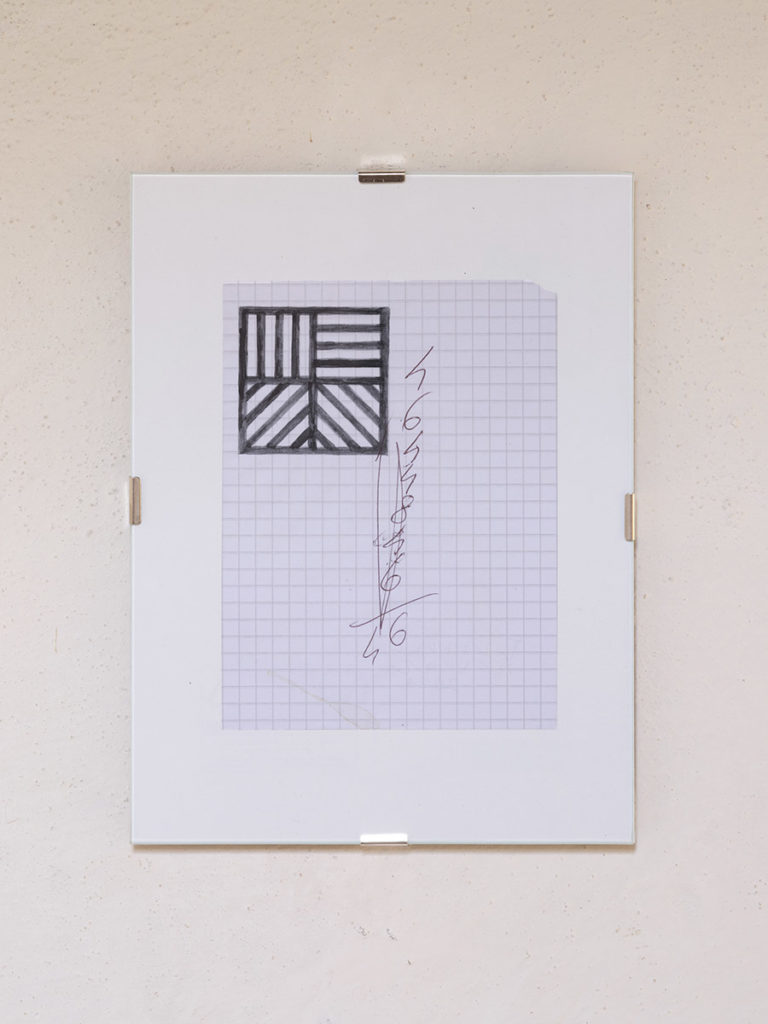
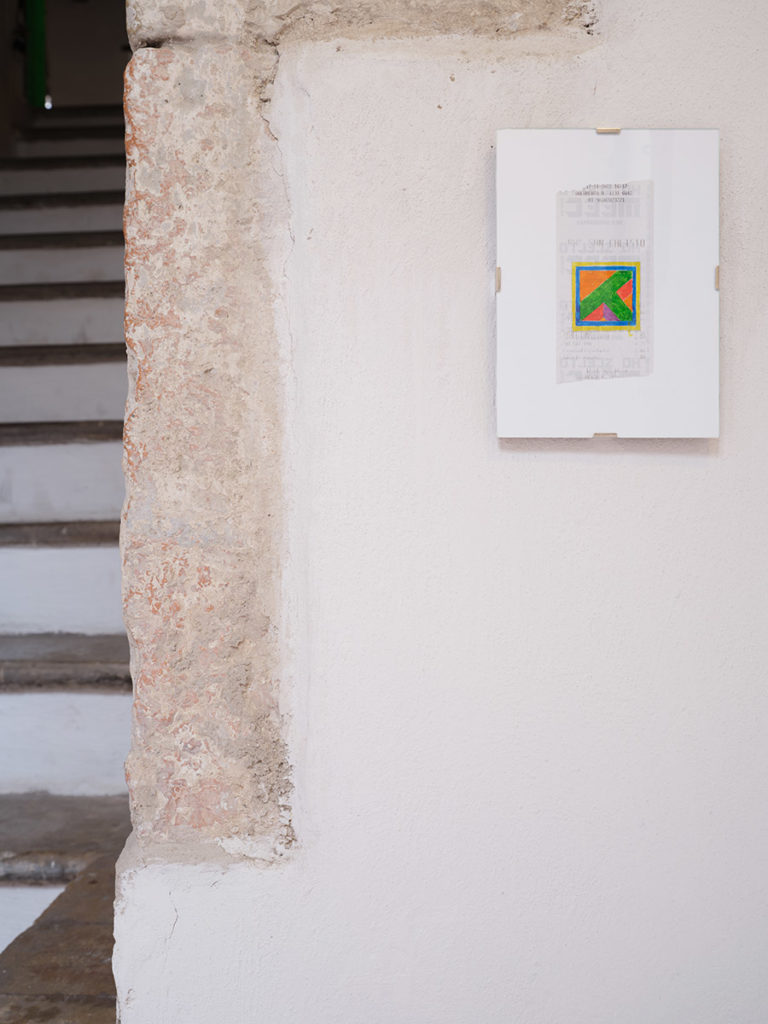
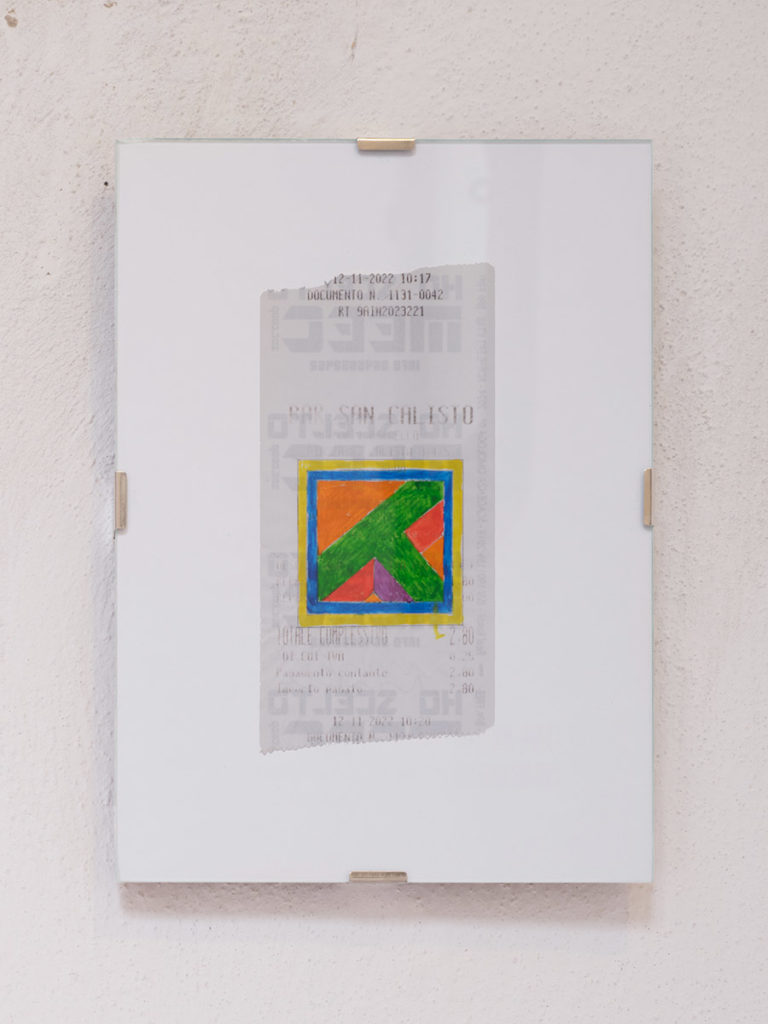
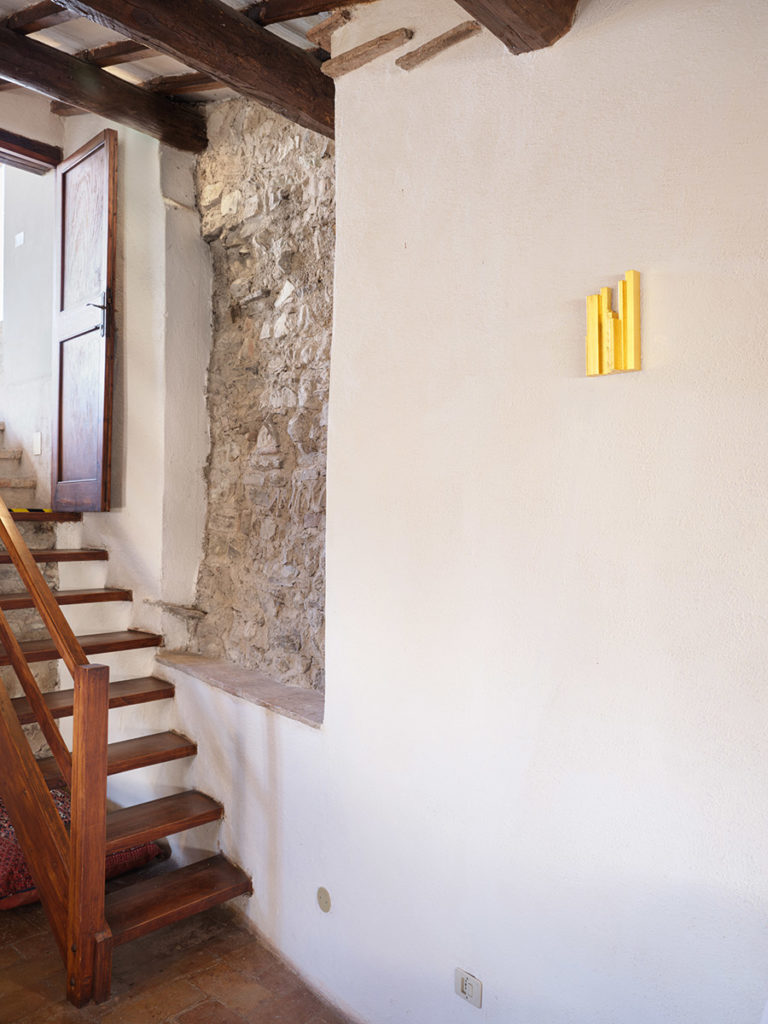
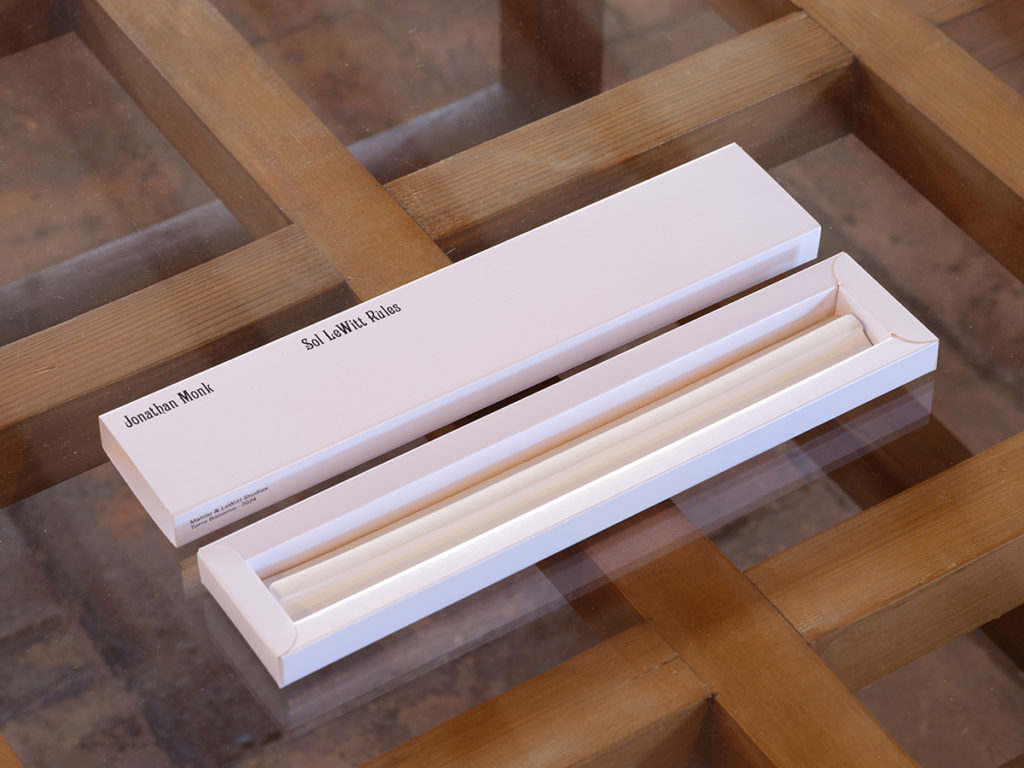
More information ‘SL’ exhibition
Sol LeWitt Rules, artist edition


Kolxoz Collective: Quasi-Book – On Poetry, Bureaucracy and Alibism
Radio2Mondi, Piazza Mentana
As part of our participation in the Fuori Festival talks program at Radio2Mondi, we launched ‘Quasi-Book: On Bureaucracy, Poetry and Alibism’ with radical artist publishers Kolxoz Collective. The collective were awarded the Viaindustriae and Mahler & LeWitt Studios ‘Quasi-book: Artist Publisher’ opportunity. At the core of Kolxoz Collective’s practice is a belief in the potentiality of printed matter to create communities and act as a platform for socio-political self-reflection and conversation. As well as self-publishing, they stage events and performances: creating temporary publishing houses and distribution centres, hosting workshops, open studios and social spaces such as coffee bars and clubs. The new publication by Kolxoz Collective documents their residency in Spoleto whilst acting as a new temporary manifesto for the collective.
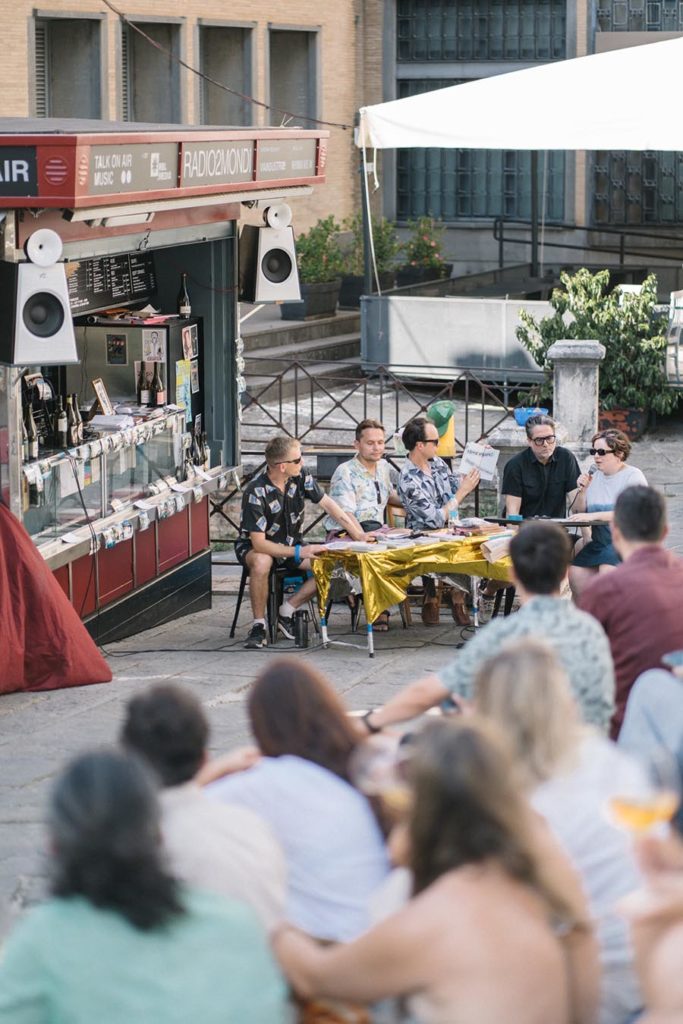
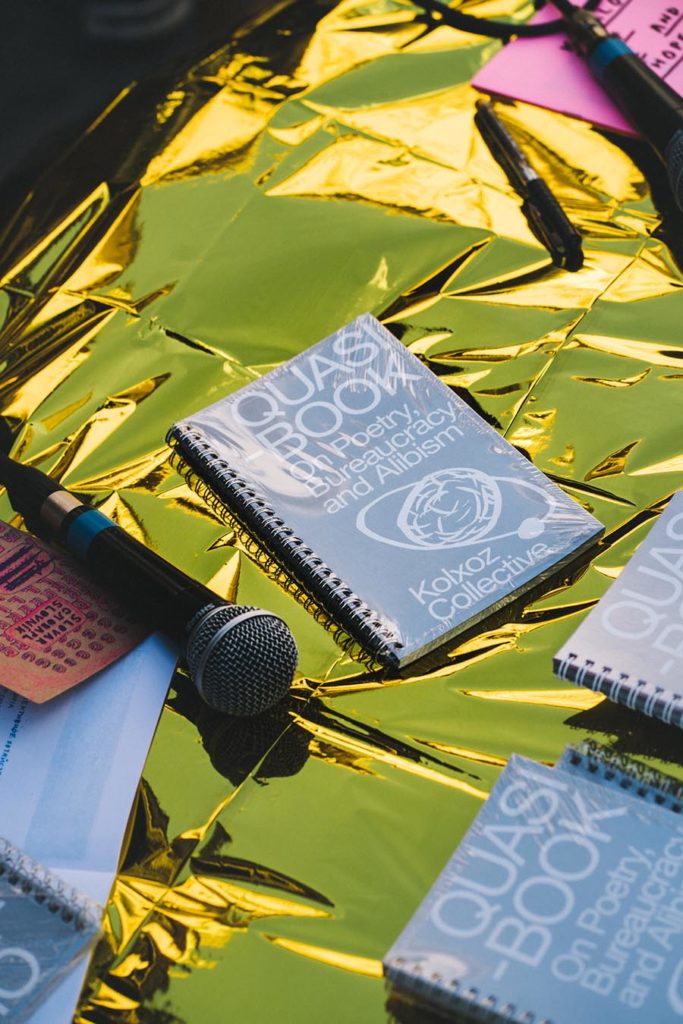
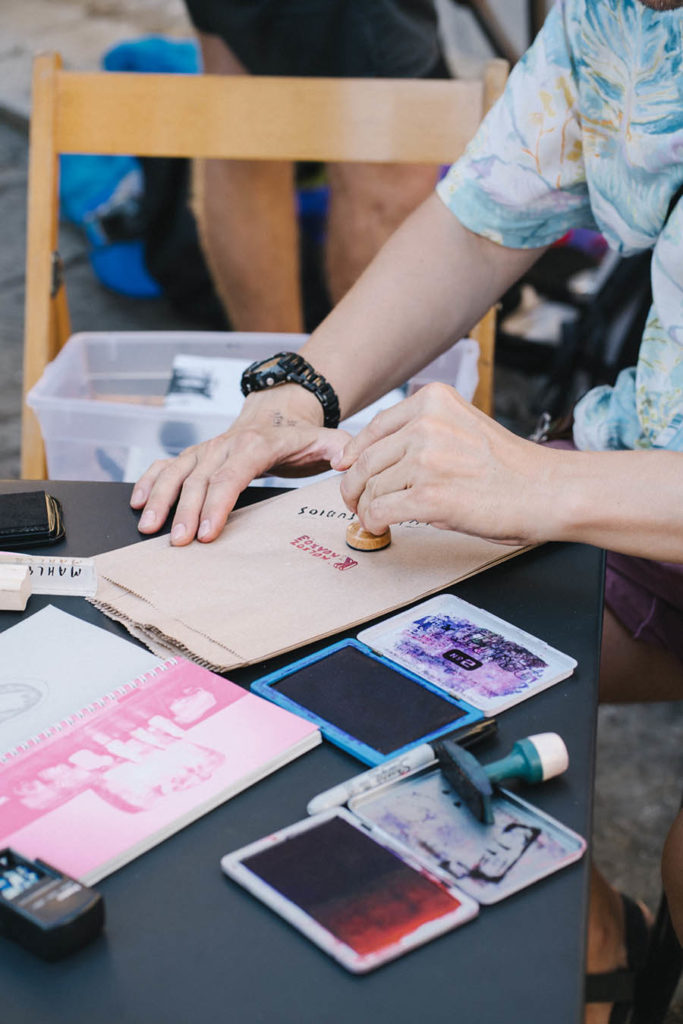
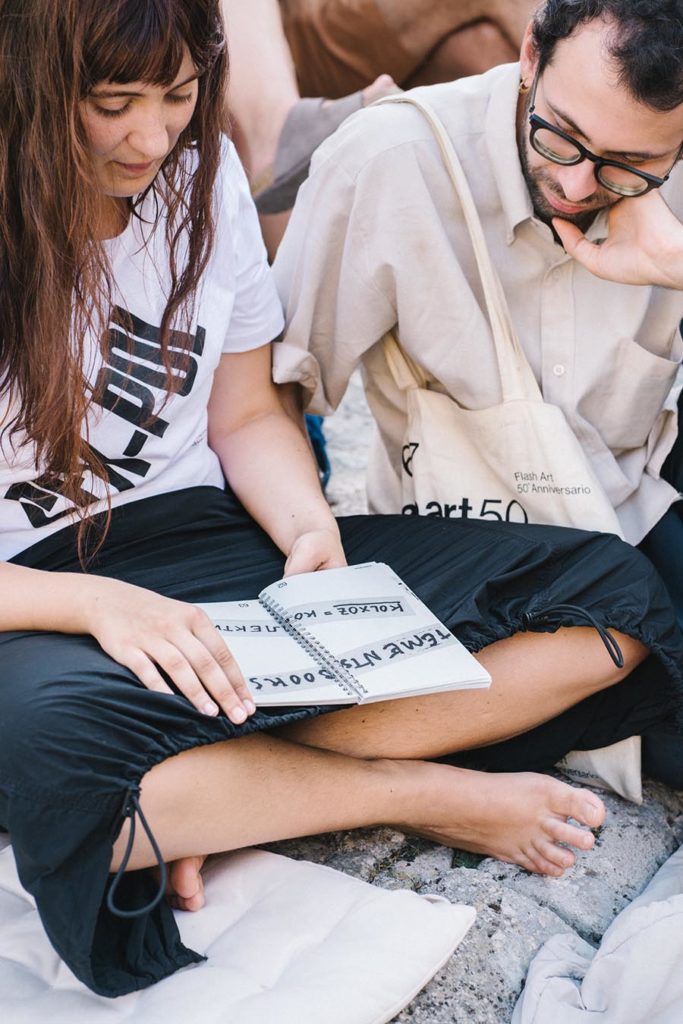
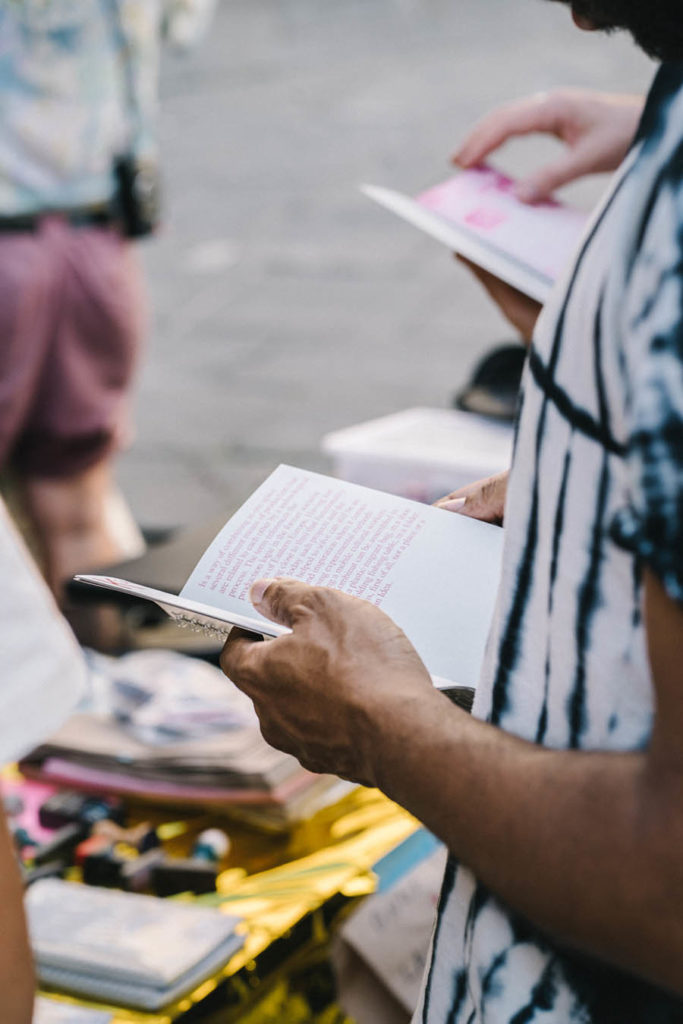
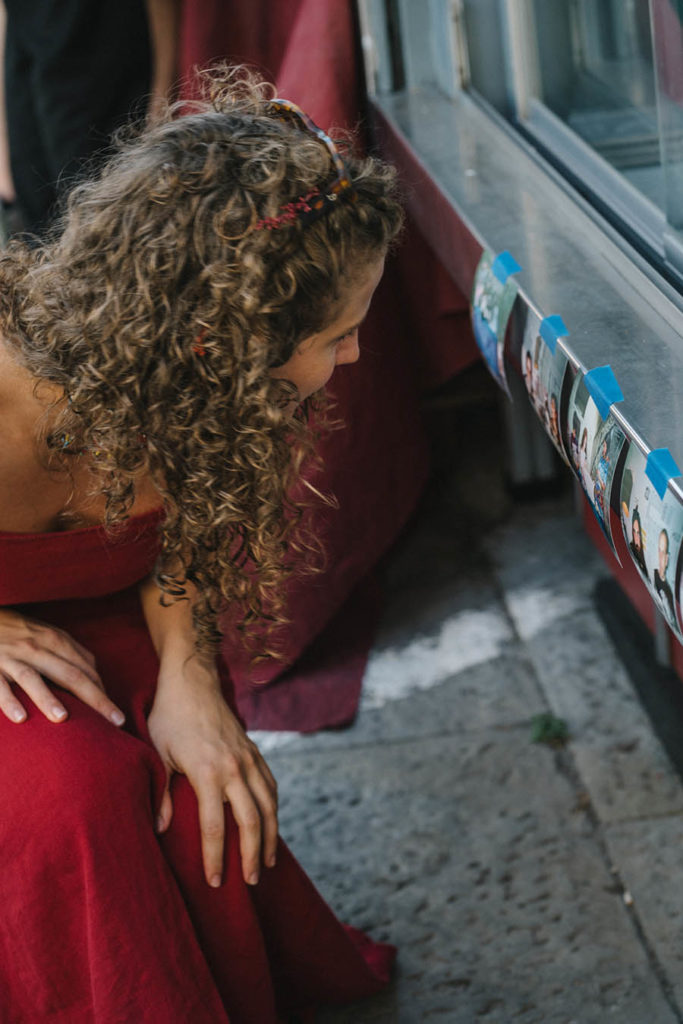
More information: Kolxoz Collective
Umru – tales from
a hydrosocial landscape
Cecilia Ceccherini & Alberto Valz Gris
MUTECO Museo del Tessuto e del Costume, Spoleto
29 June – 30 September, 2024
In partnership with Musei Civici di Spoleto, Spoleto Festival dei Due Mondi and with giulia deval, Henry Albert, Guglielmo Diana
Realised as a large-scale tapestry and sound installation, Umru: tales from a hydrosocial landscape is a collaborative project by artist Cecilia Ceccherini and geographer Alberto Valz Gris exploring how communities are defined by their access to water. The project was developed during a series of research residencies hosted by the Mahler & LeWitt Studios beginning in 2022. The exhibition highlights the realities of water scarcity whilst creating a poetic and reflective space to think through human-environment interactions in the context of climatic collapse. Taking Spoleto and its environs as their starting point, Ceccherini and Valz Gris draw on diverse local subjects including the story of St Felice and Mauro and the dragon, understood as a water mythology, contested water sources used for the commercial bottling of drinking water, and the survival of a rare mountain shrimp in the Monti Sibillini national park. These tales are weaved into Ceccherini’s tapestry using semi-abstract, inter-connected symbols, whilst Valz Gris’s diaristic, experimental writing, interpreted by author Henry Albert and performed by sound artist Giulia Deval, creates a polyvocal, evocative soundscape inspired by the prophetic voices of the sibyls who give their name to the same mountains.

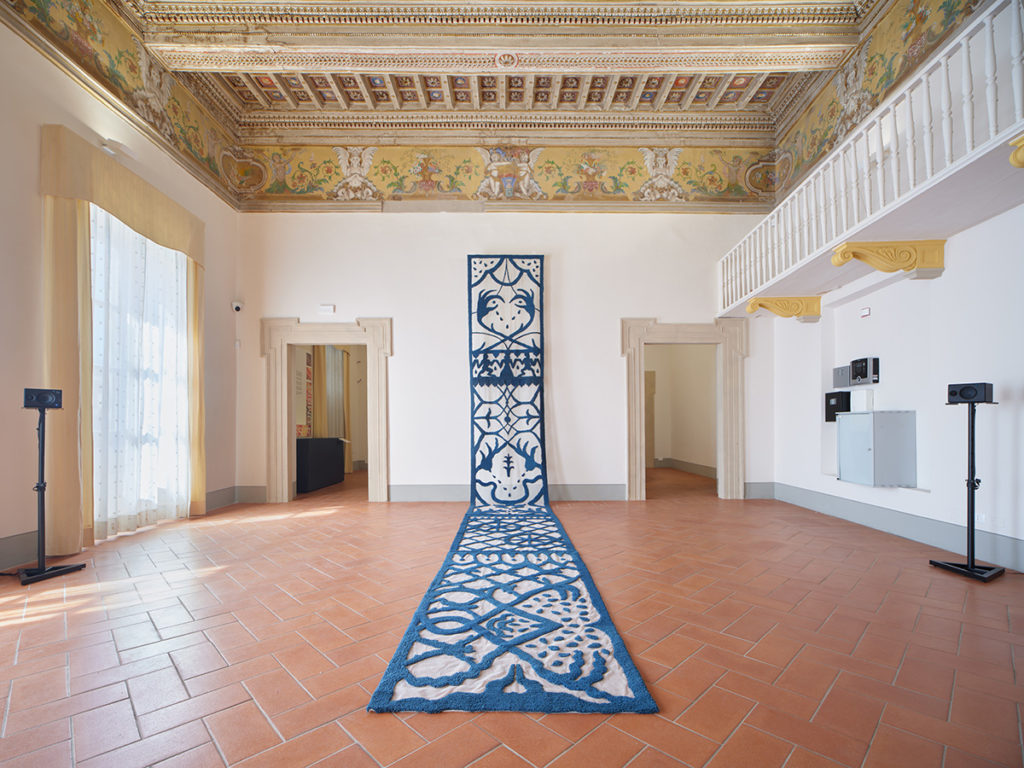
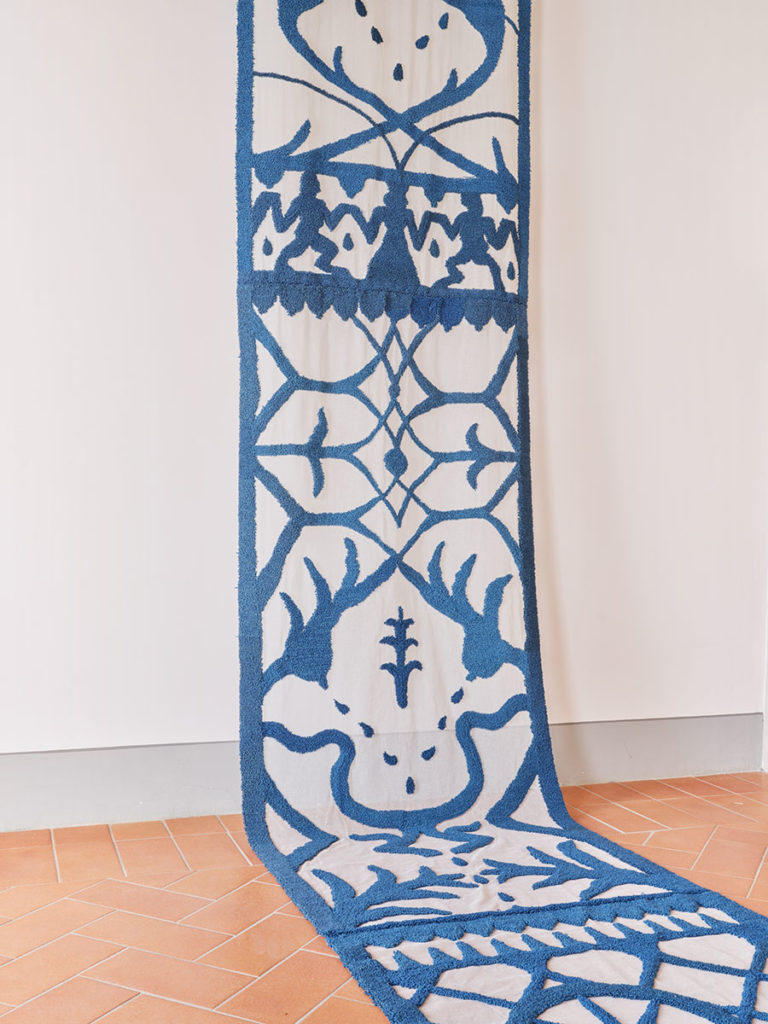
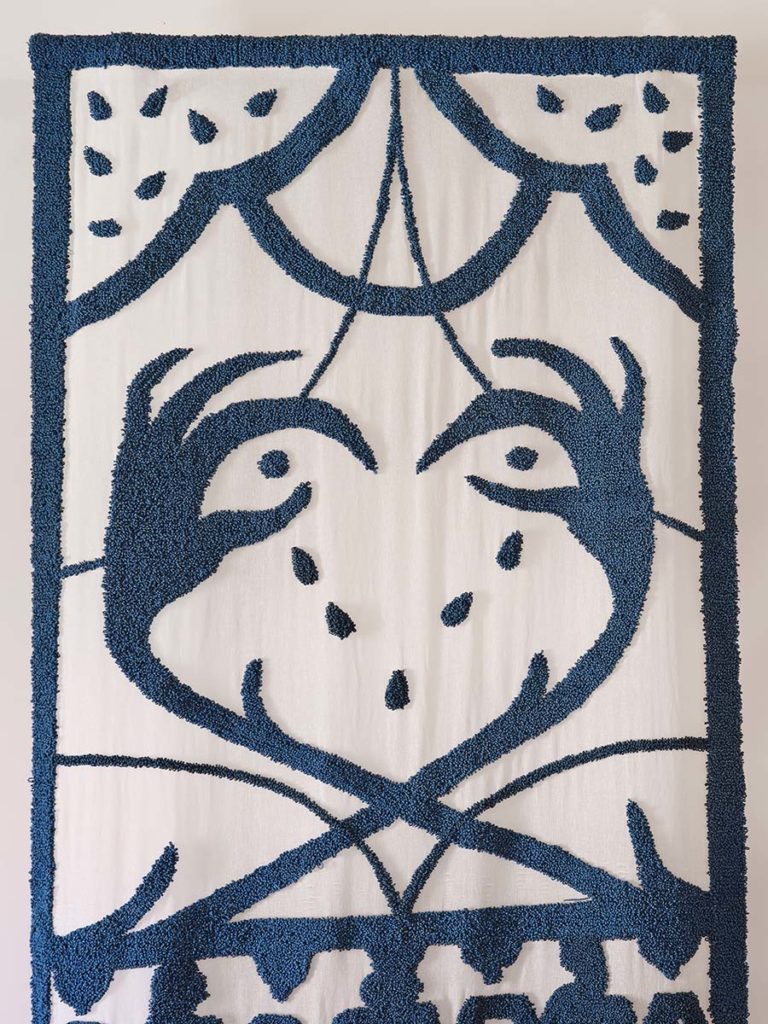
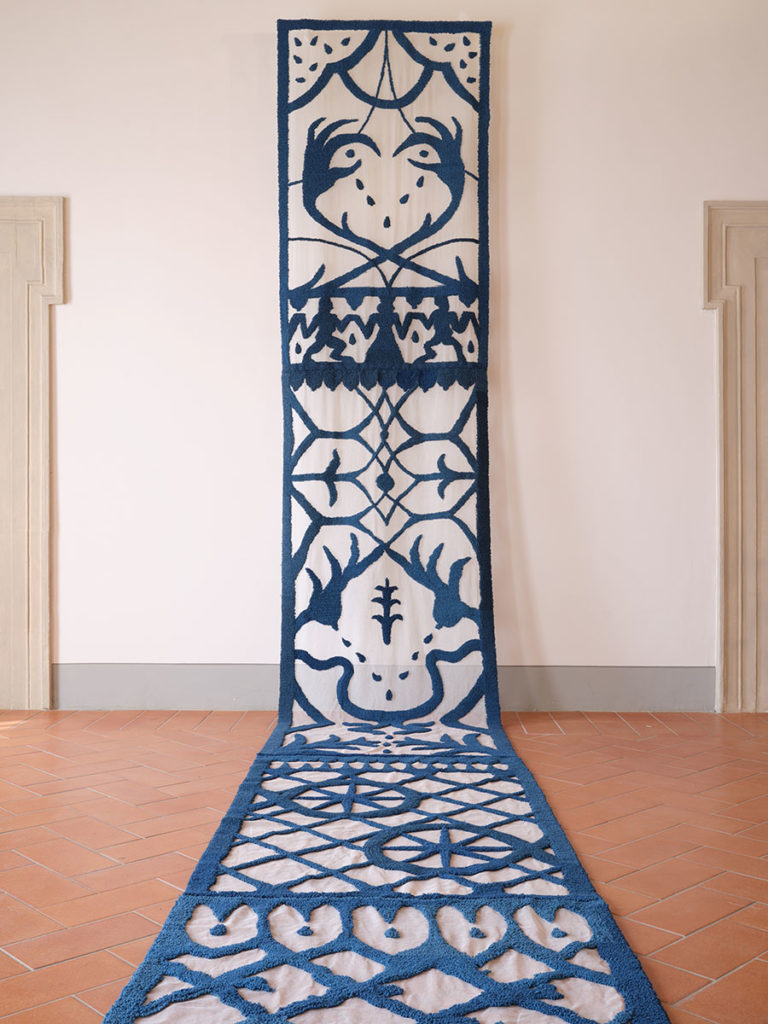
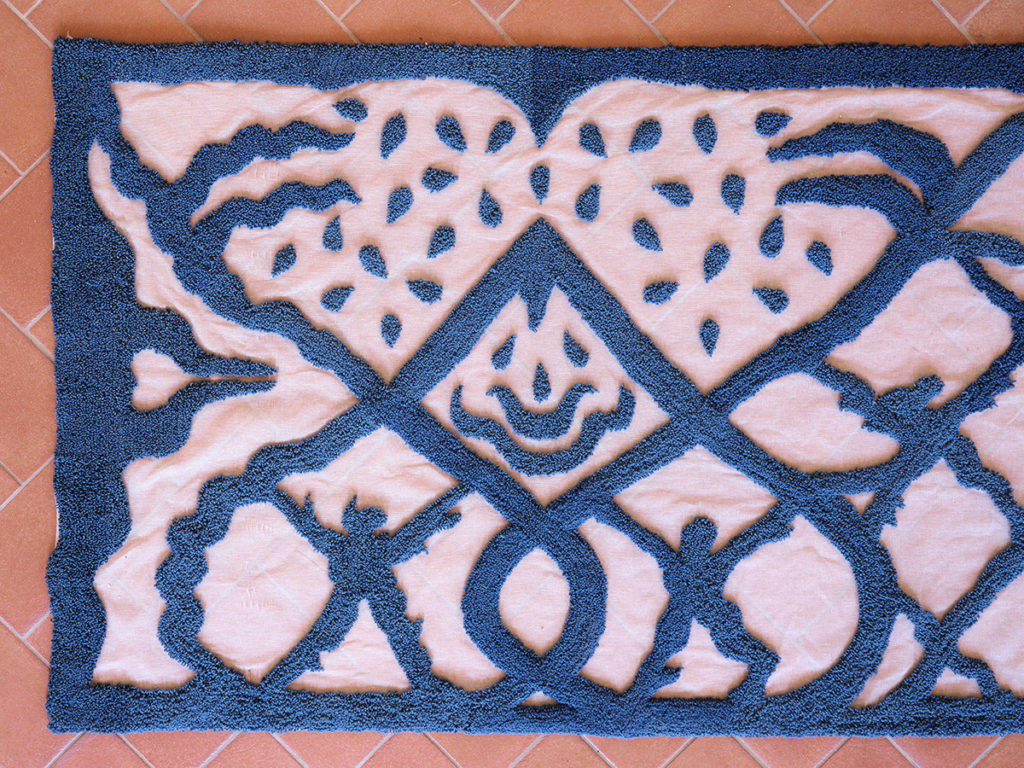
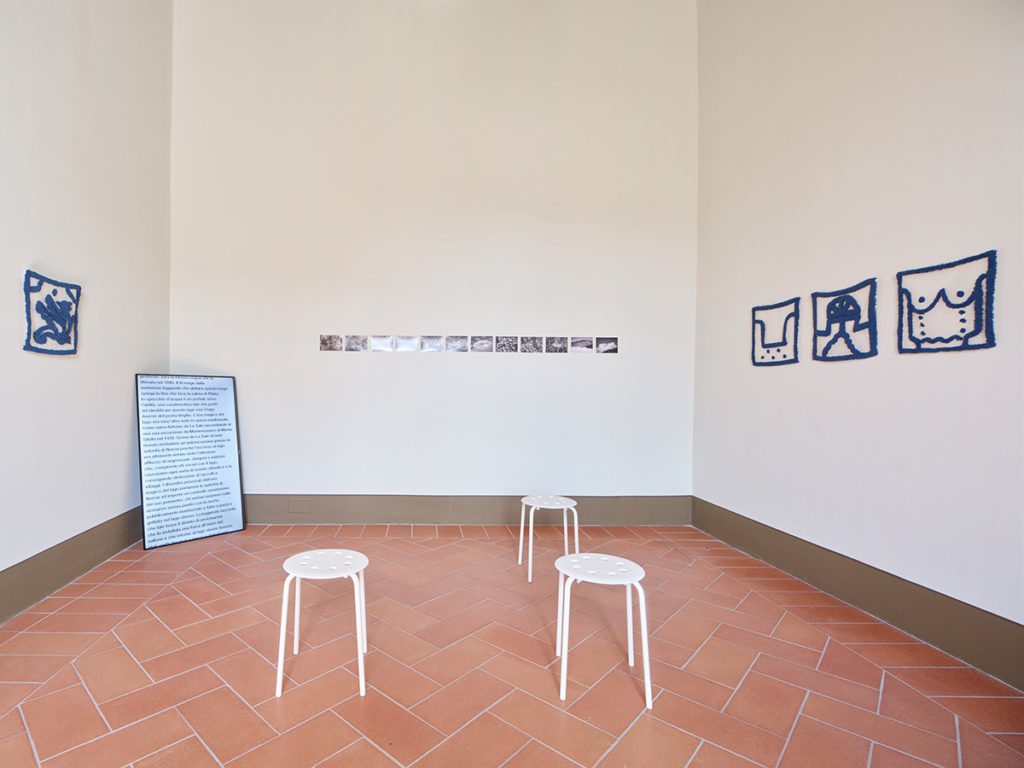
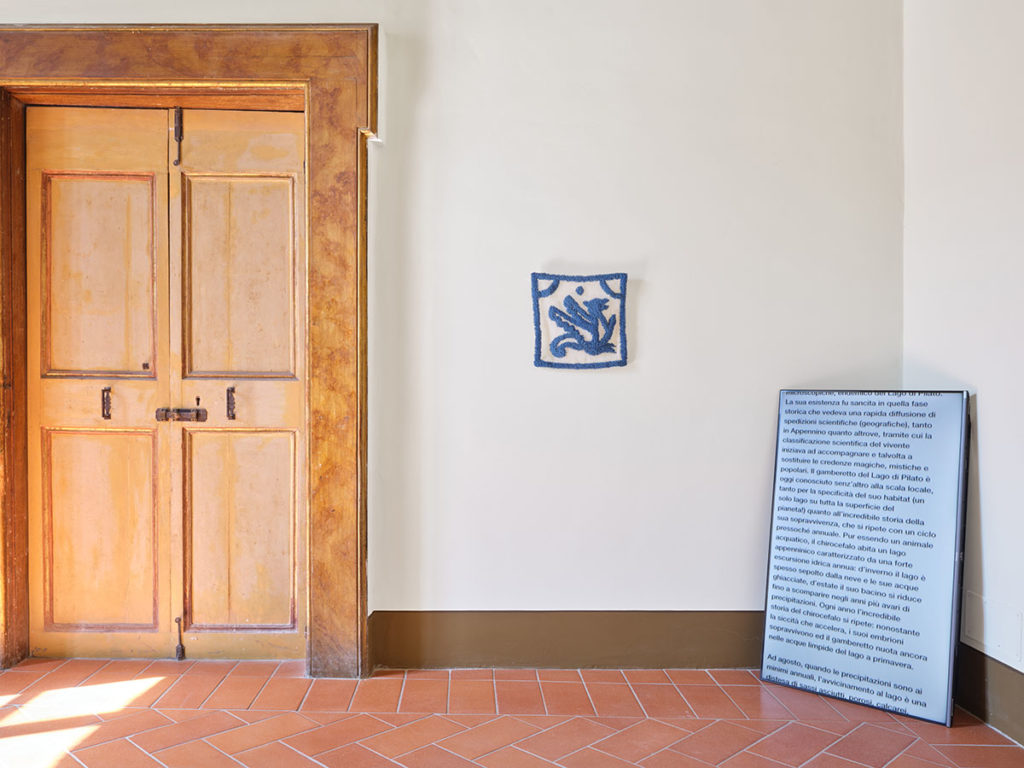
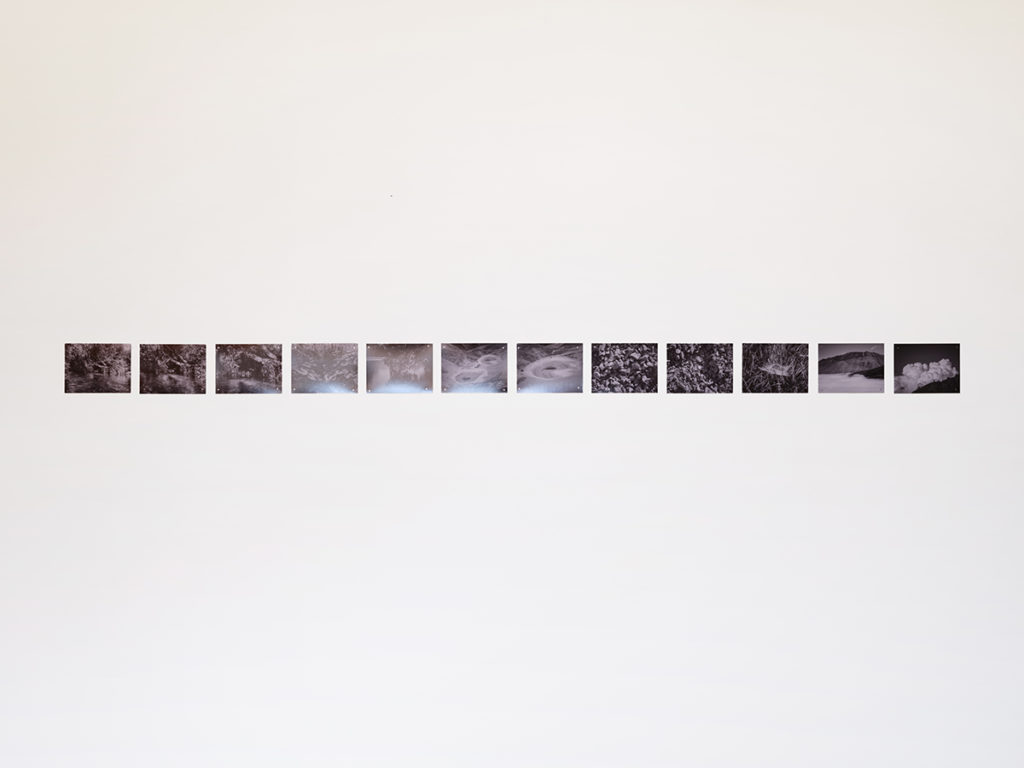
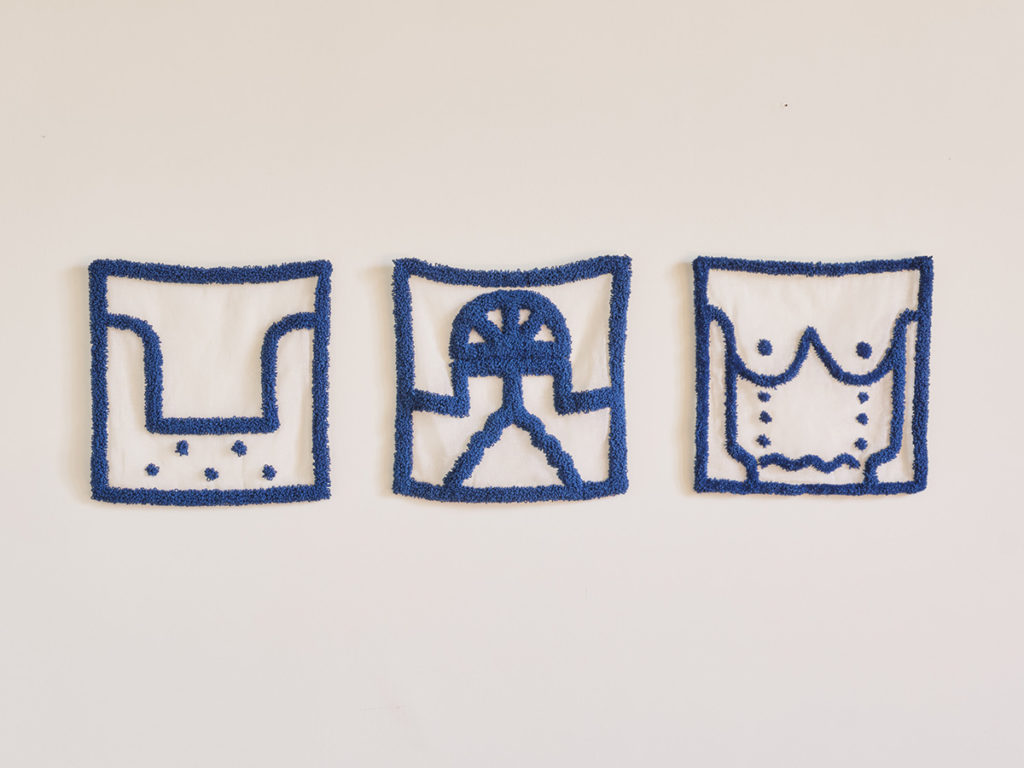
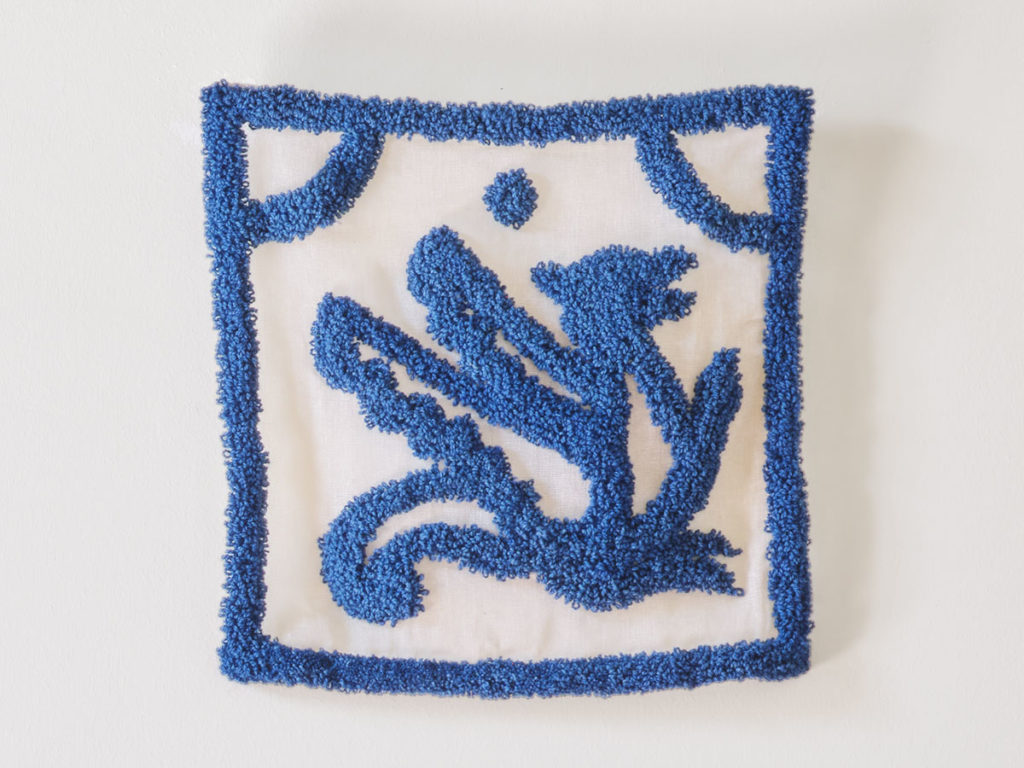
Carly Breame
Ceramica Umbra
We celebrated the final weekend of the Spoleto Festival with ceramicist, materials designer and researcher Carly Breame. An advocate for environmental integrity and sustainable materials production, Breame develops tools to measure environmental impact and – combining research and craft – designs usable materials which represent local environments. Breame started her residency at the Mahler & LeWitt Studios asking, “How can the dining table – specifically tableware – represent the material culture of Spoleto and the surrounding region? How can the landscape be reflected in the experience of dining?” Working with artisans in the historic ceramic centre of Deruta, Breame has made a series of utensils in locally sourced clay which modernise traditional designs. The utensils, commissioned by local restaurants, are painted with glazes made from by-products of regional cuisine, including dried grape skins and stems from wine-making in Montefalco and the shells of snails, a local delicacy. Breame said, “The aperitivo is an invitation to gather around the dining table, to eat and drink from utensils which materially represent the Valle Umbra, and to engage in conversations around the materials we use day to day.”
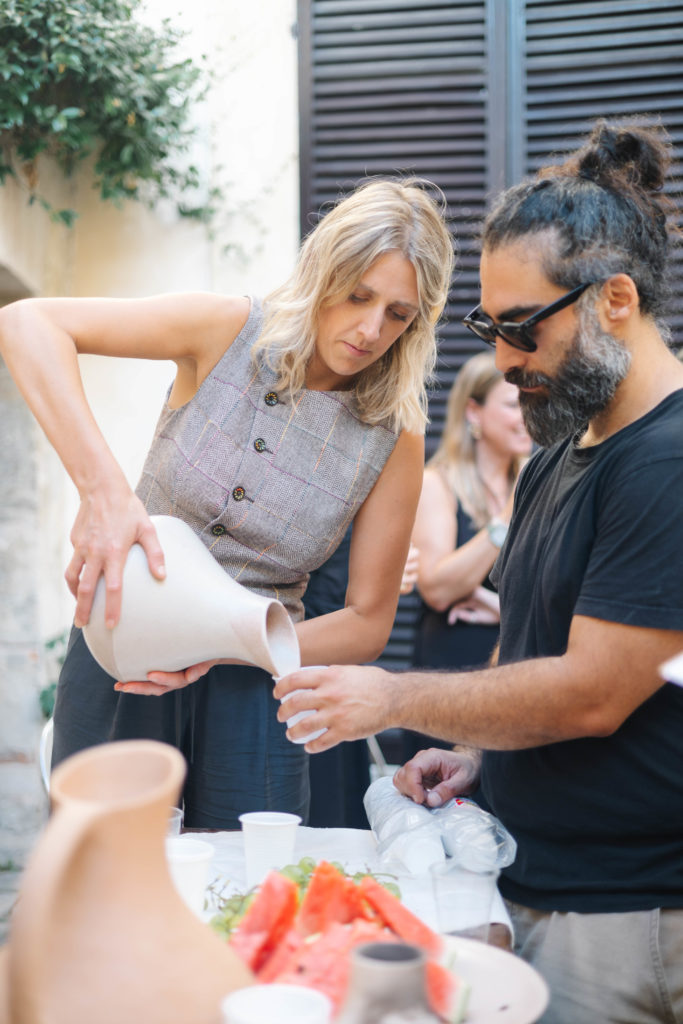
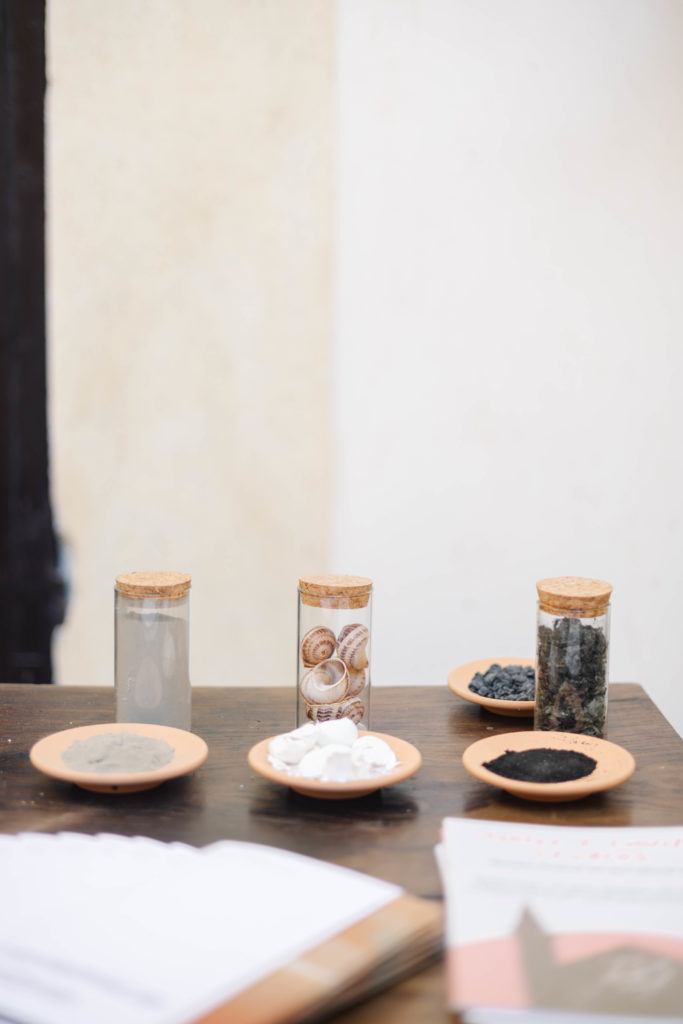
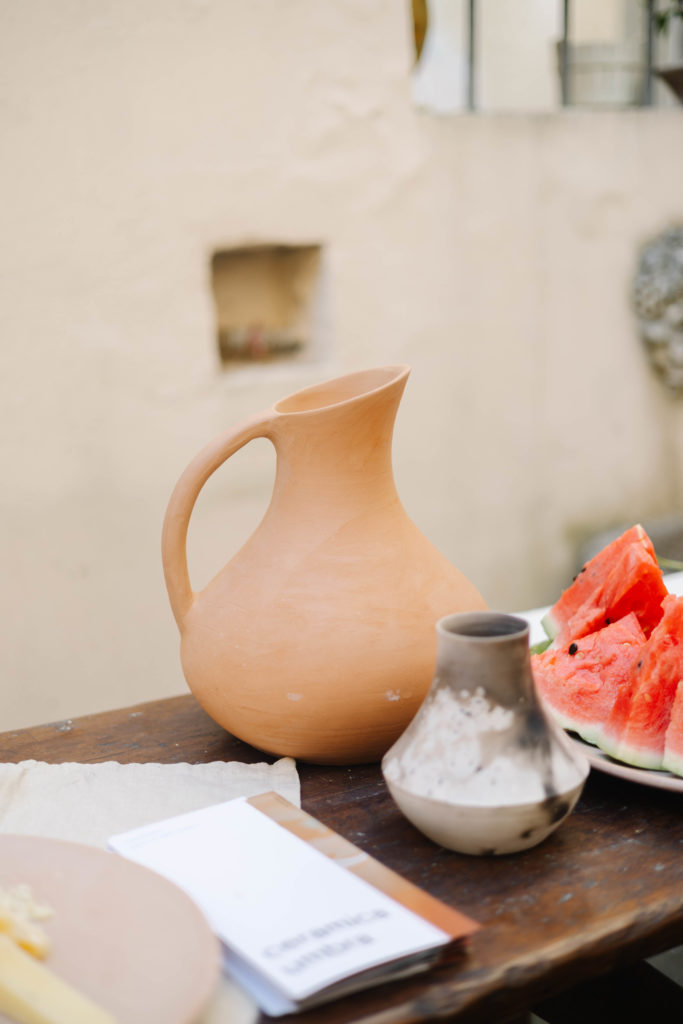
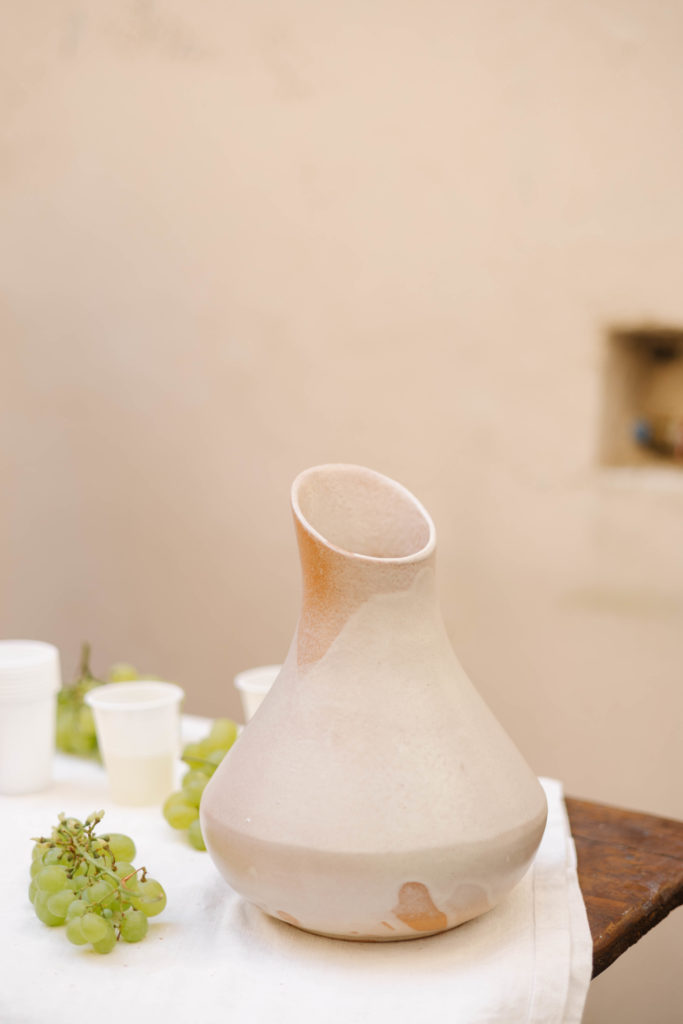
Thank you for reading!
We are now pausing the program in Spoleto until the Winter Session 2025. In the meantime we will be preparing and announcing our ANNIVERSARY APPEAL. The appeal will celebrate 10 years of the Mahler & LeWitt Studios whilst paving the way for the future of the Association with a dynamic and vital program supporting cutting-edge work across the arts. We look forward to sharing information with you soon.
Our best wishes,
Eva LeWitt and Guy Robertson
Directors, Mahler & LeWitt Studios


